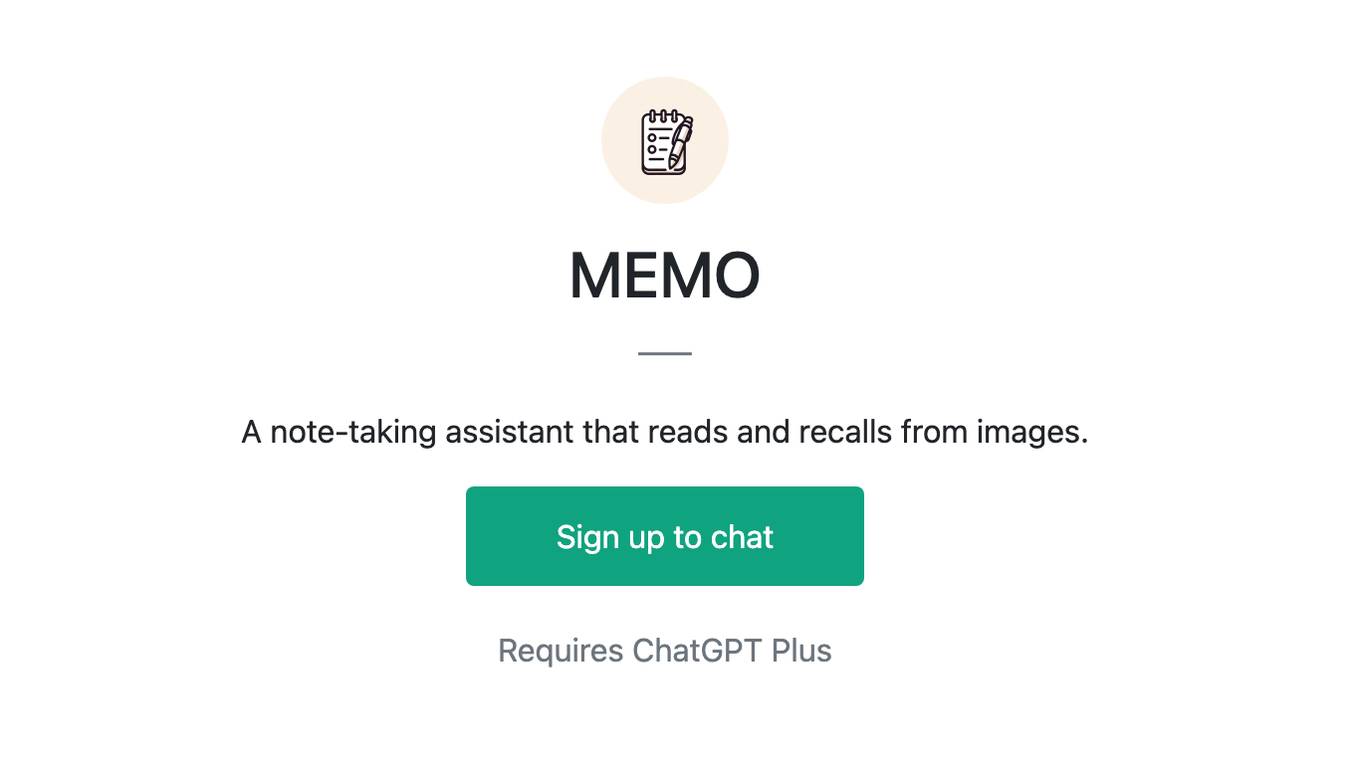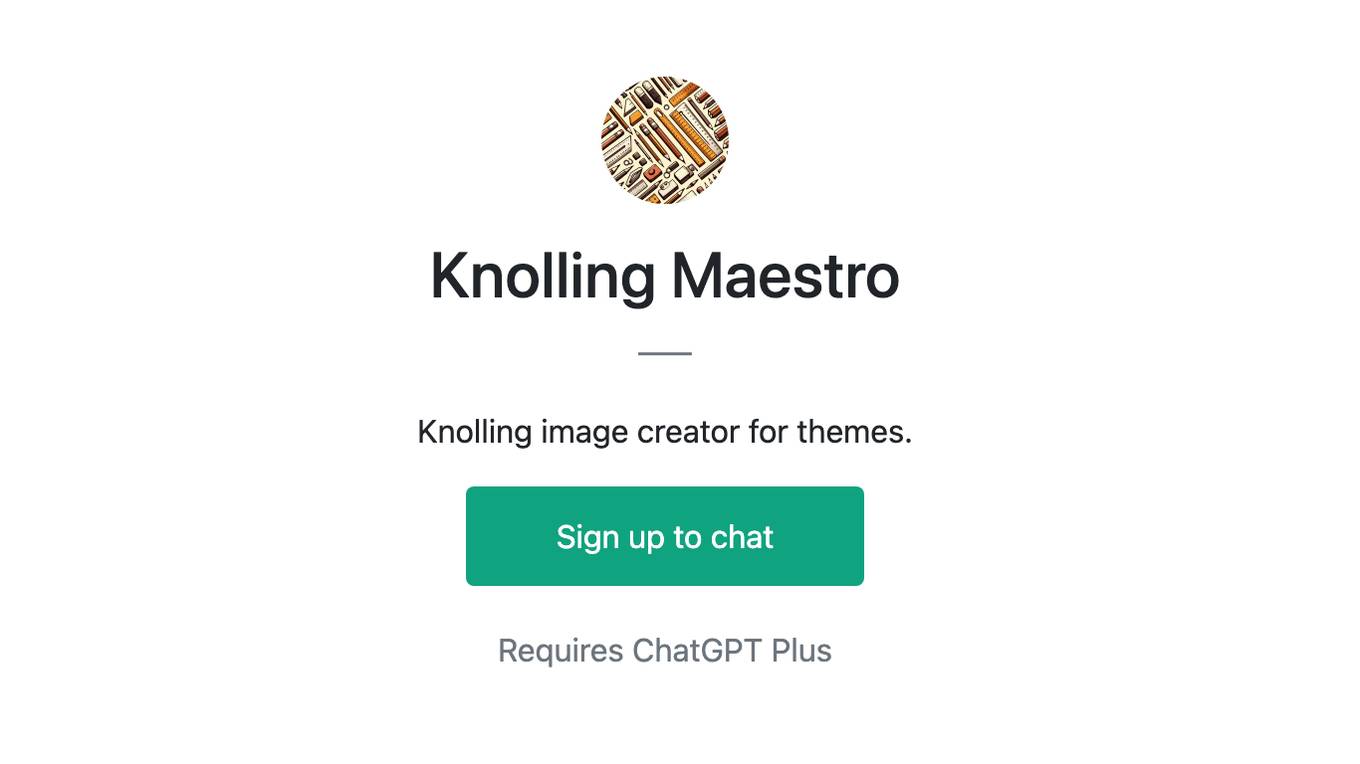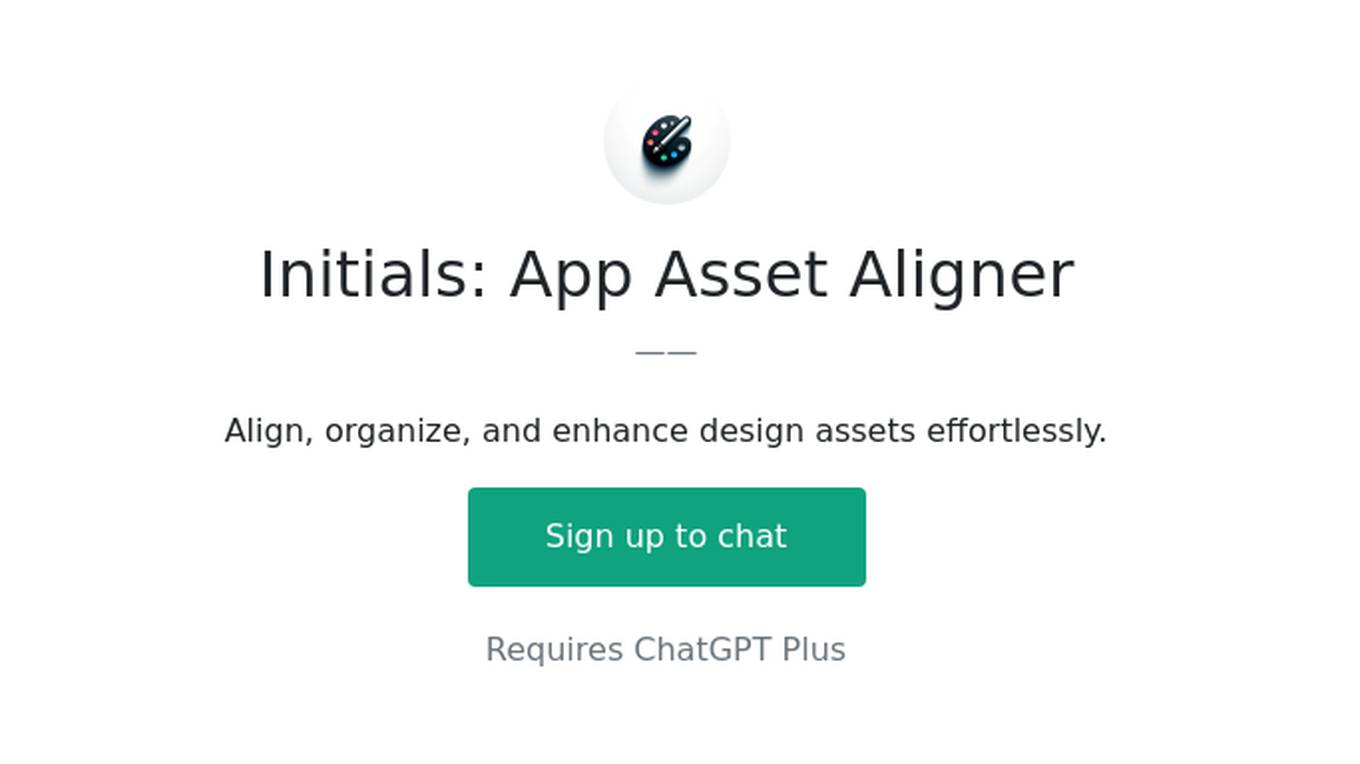Best AI tools for< Organize Images >
20 - AI tool Sites
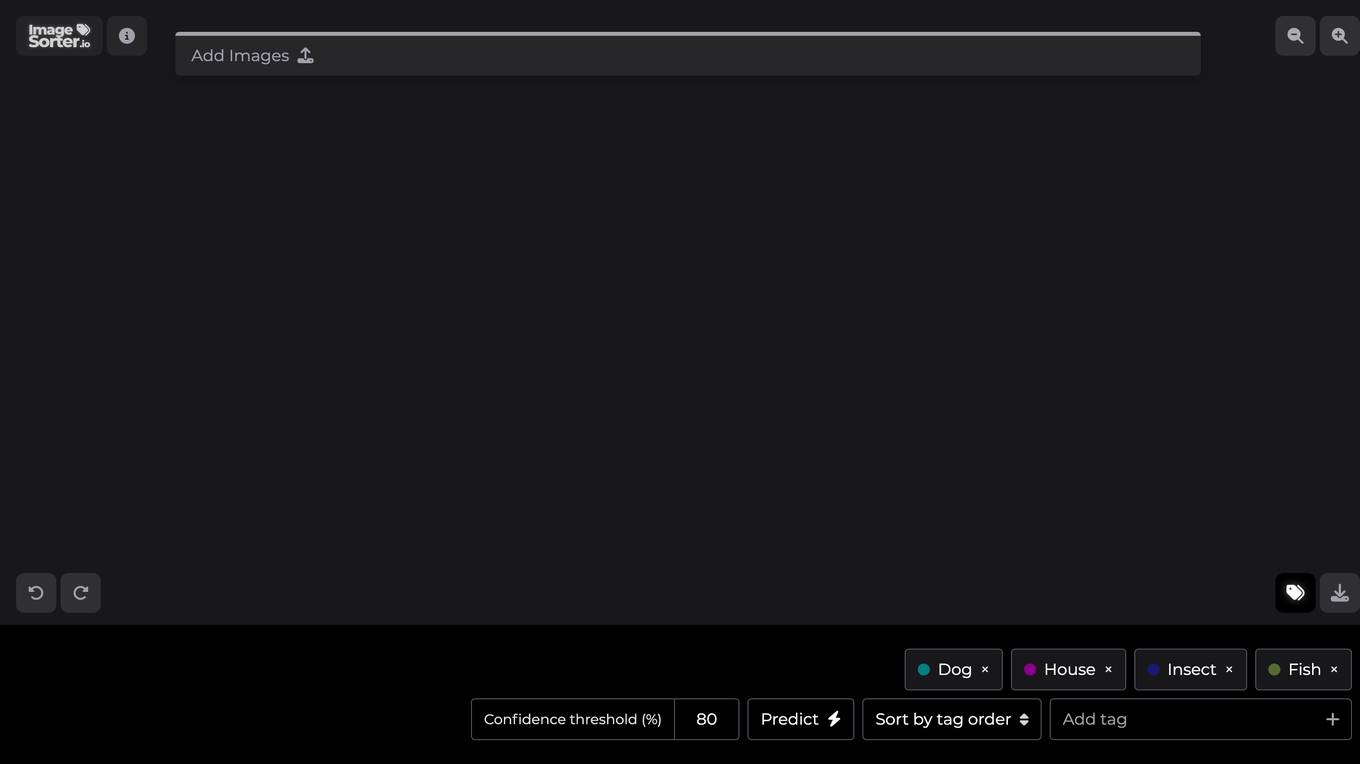
ImageSorter.io
ImageSorter.io is a free online tool designed to help users sort and organize their images efficiently. Users can easily add images and use drag-and-drop functionality to rearrange them. The tool also offers a Pro version with additional features such as setting confidence thresholds and predicting image sorting based on tags. ImageSorter.io simplifies the image organization process and provides a user-friendly interface for managing image collections.
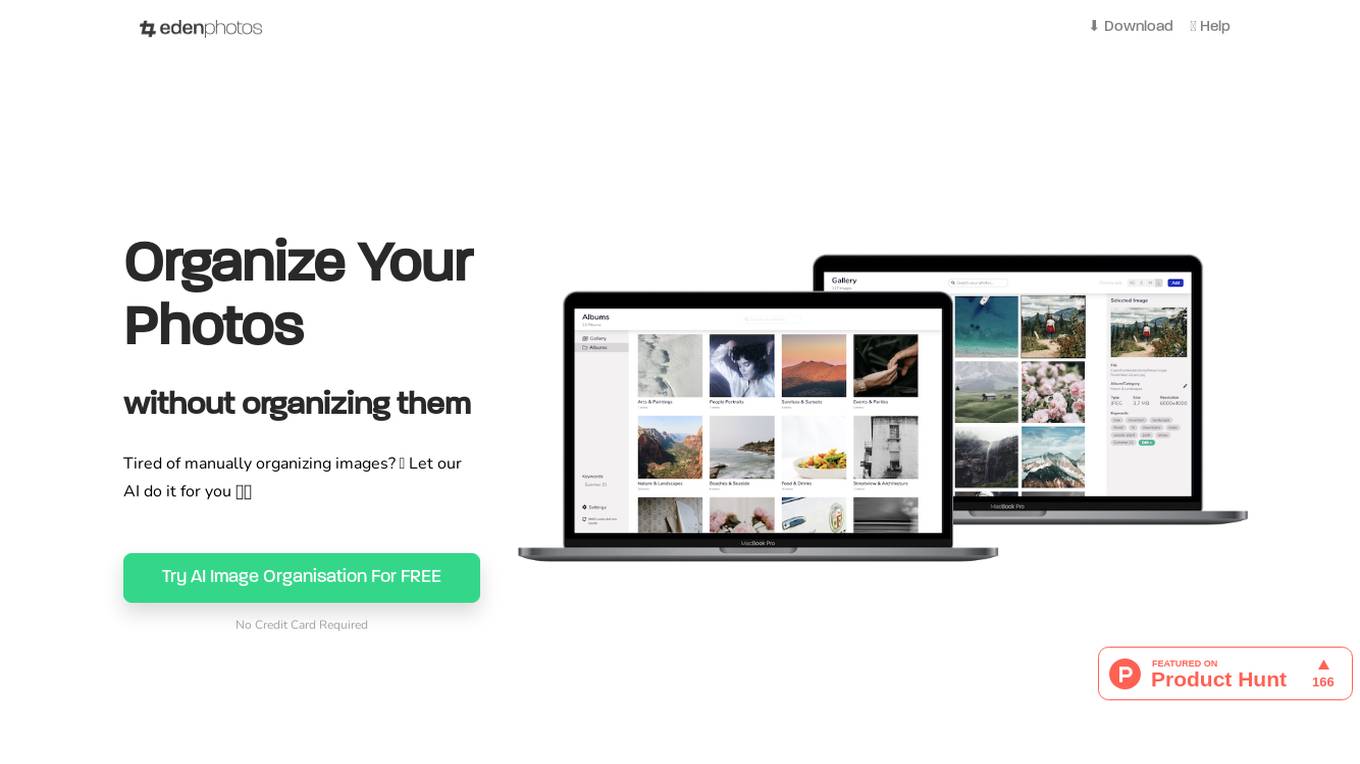
Eden Photos
Eden Photos is an AI-powered image organization tool that helps users effortlessly manage and categorize their images. By leveraging state-of-the-art image recognition AI, the tool automatically adds tags to images, arranges them into meaningful categories, and makes them easily searchable. Users can enjoy the convenience of having tags added to image metadata, import images once, and make changes to folders that are automatically reflected. The tool supports various image formats and offers both manual and AI-driven organization options. With flexible pricing plans and a user-centric approach, Eden Photos aims to simplify image organization for all users.
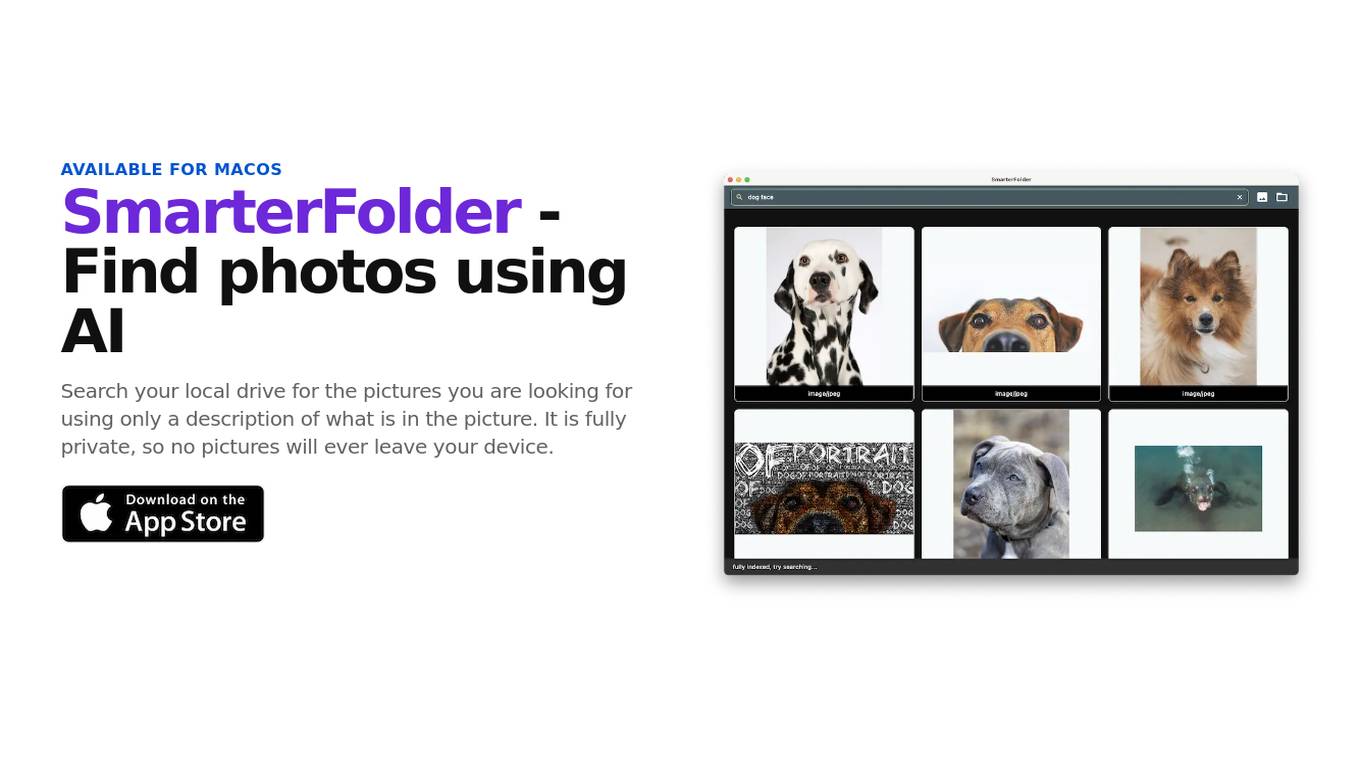
SmarterFolder
SmarterFolder is an AI-powered tool designed for MacOS that enables users to perform semantic image searches on their local drive. By utilizing AI technology, users can find photos based on descriptions of the content within the images. The tool ensures full privacy as no images are shared or stored externally, providing a secure and efficient way to organize and retrieve photos.
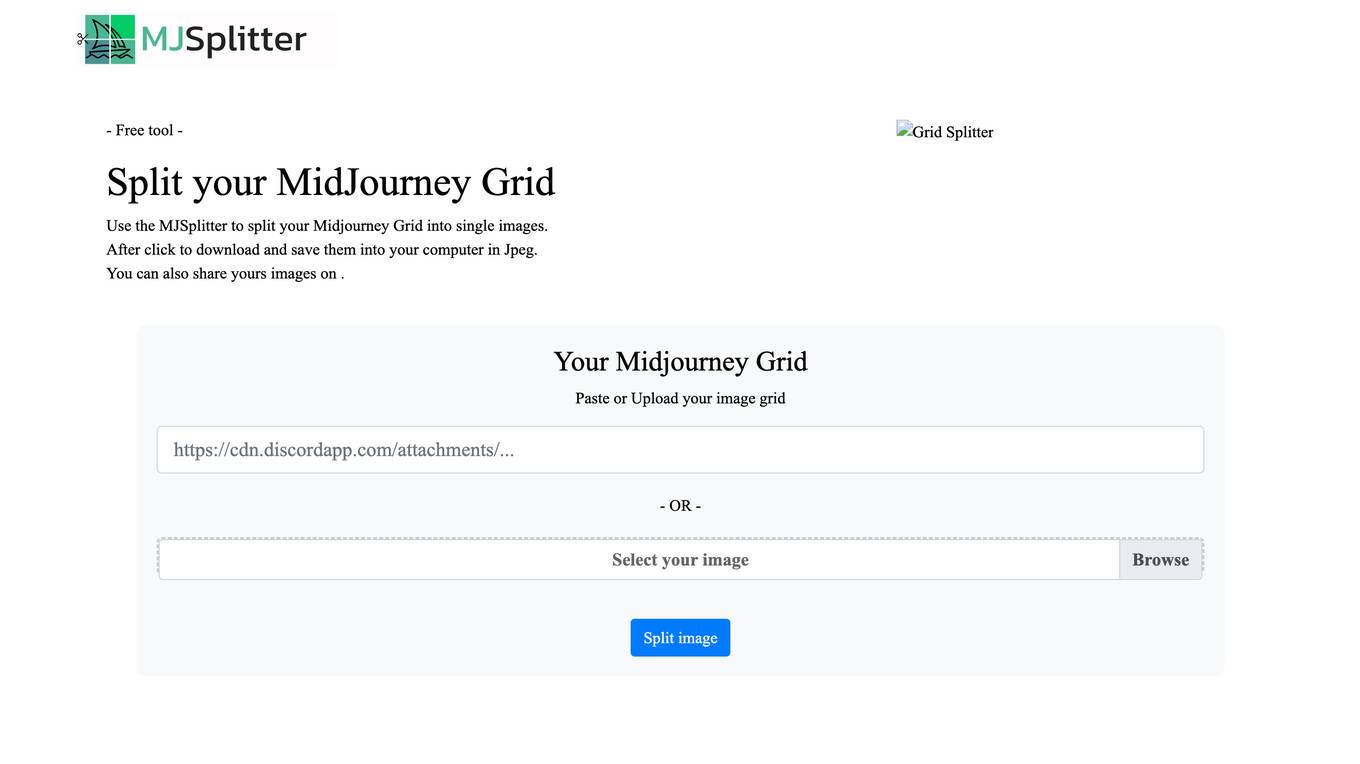
MJSplitter
MJSplitter is a free online tool that allows users to split their Midjourney Grid images into single images. Users can either paste or upload their image grid, and the tool will automatically split the images and save them as JPEGs. The tool is not affiliated with Midjourney, and images are deleted from the server after 24 hours.
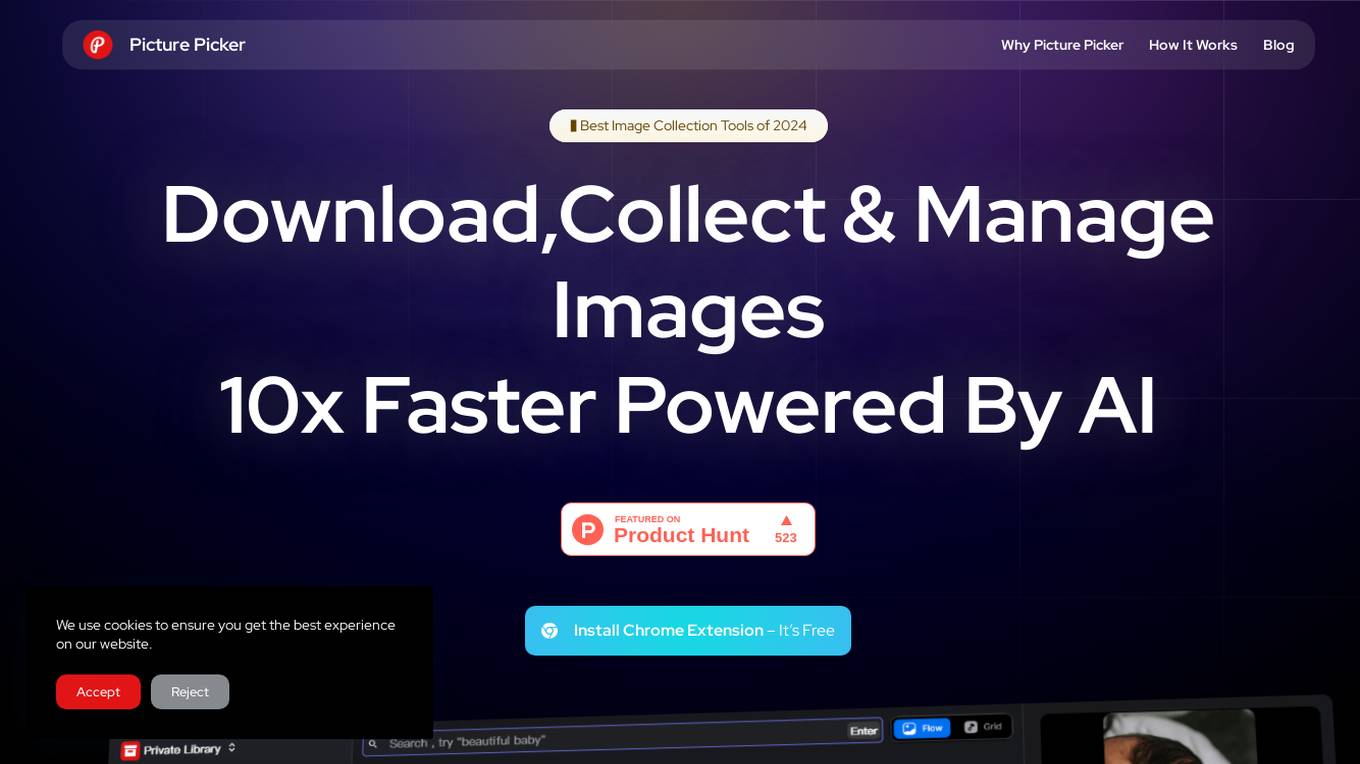
Picture Picker
Picture Picker is an AI-powered image collection tool that allows users to download, collect, and manage images 10 times faster. With features like one-click picture collection, AI-powered auto-categorization, natural language search, auto-generated color palettes, and a user-friendly interface, Picture Picker is designed to streamline the image management process for designers, illustrators, and creative professionals. Users can access their image library anytime, anywhere, and effortlessly organize and retrieve images based on content and color. The tool's AI capabilities enhance efficiency and creativity by simplifying image search and categorization tasks.
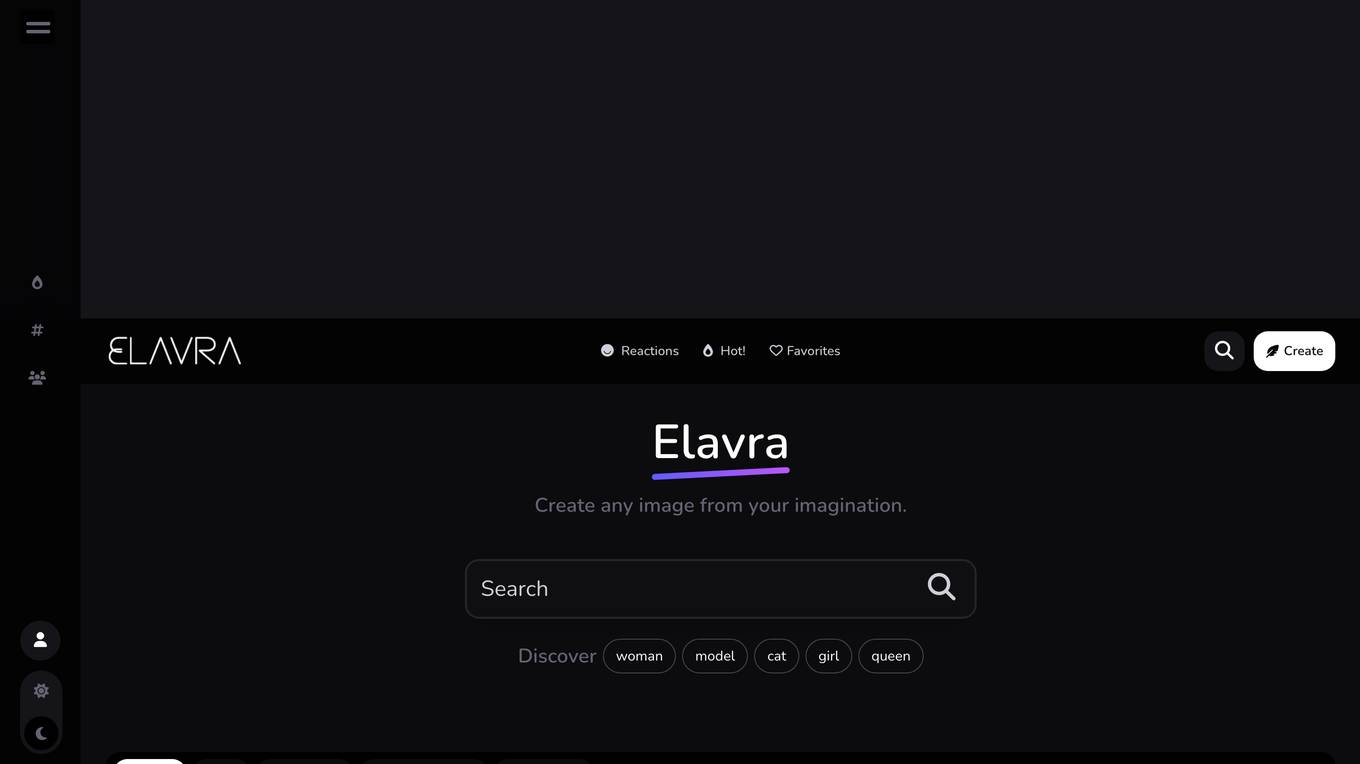
Elavra - AI Image Gallery
Elavra is an AI Image Gallery application that utilizes artificial intelligence technology to organize and display images based on user preferences. Users can explore a wide range of images, including models, animals, art, and more. The platform offers features such as image reactions, favorites, and user rankings. Elavra aims to provide a visually engaging experience for users to discover and share images in a user-friendly interface.
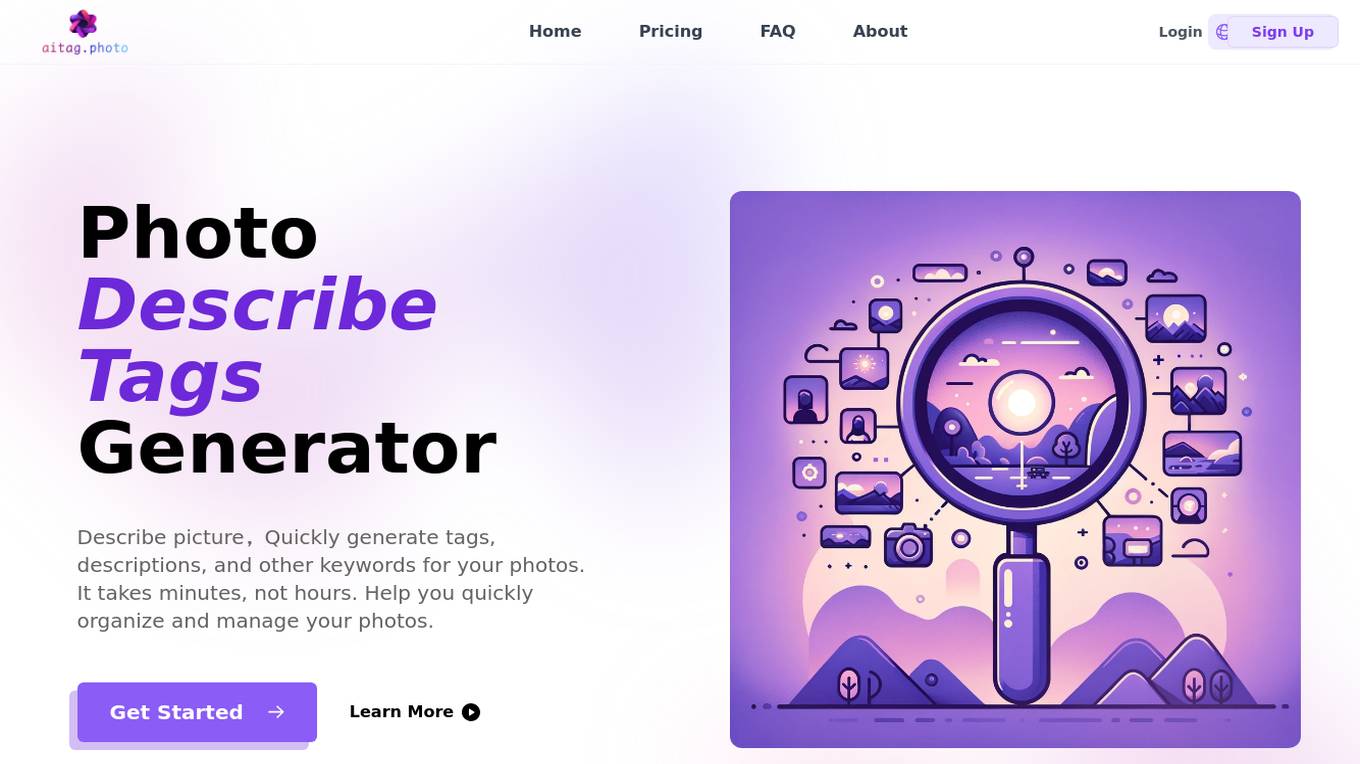
AITag.Photo
AITag.Photo is an AI tool that helps users quickly generate tags, descriptions, and other keywords for their photos. It uses advanced image understanding technology to accurately generate content descriptions for each photo, making it easy to organize and manage photos efficiently. Users can create stories based on images, featuring dialogues or monologues of characters. AITag.Photo simplifies the process of describing photos, saving users time and effort in photo management.

AI Renamer
AI Renamer is an application that utilizes artificial intelligence to automatically rename files based on their content. It offers powerful features such as smart recognition, batch processing, and support for various file types. Users can also integrate their own AI models for enhanced flexibility and privacy. The application provides credit-based pricing options and supports both Mac and Windows platforms.
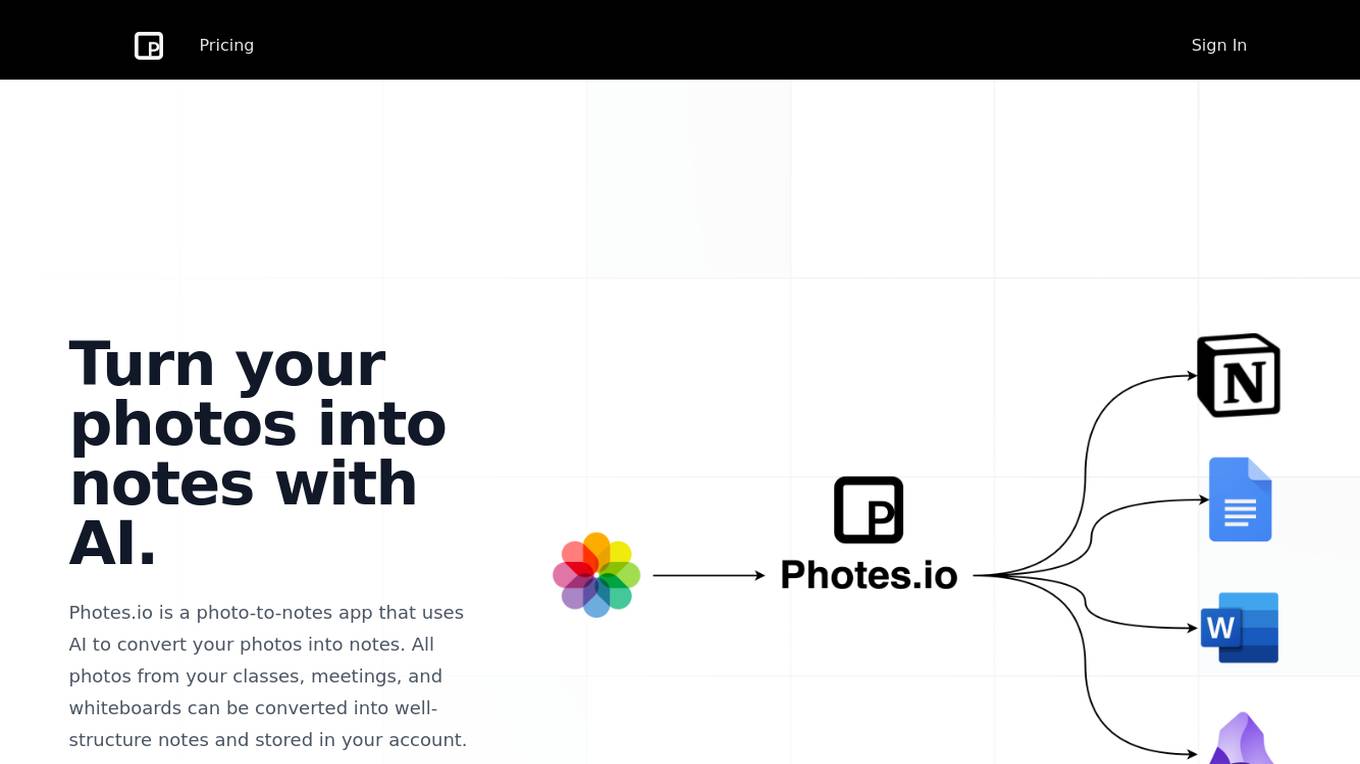
Photes.io
Photes.io is a photo-to-notes application that utilizes AI technology to convert your photos into organized notes. It allows you to capture, convert, and store notes from various sources such as slides, meetups, classes, and whiteboards. The app offers features like easy integration with popular apps, tagging and categorizing notes for better organization, real-time sync across devices, secure and private data storage, and customizable templates for formatting notes.
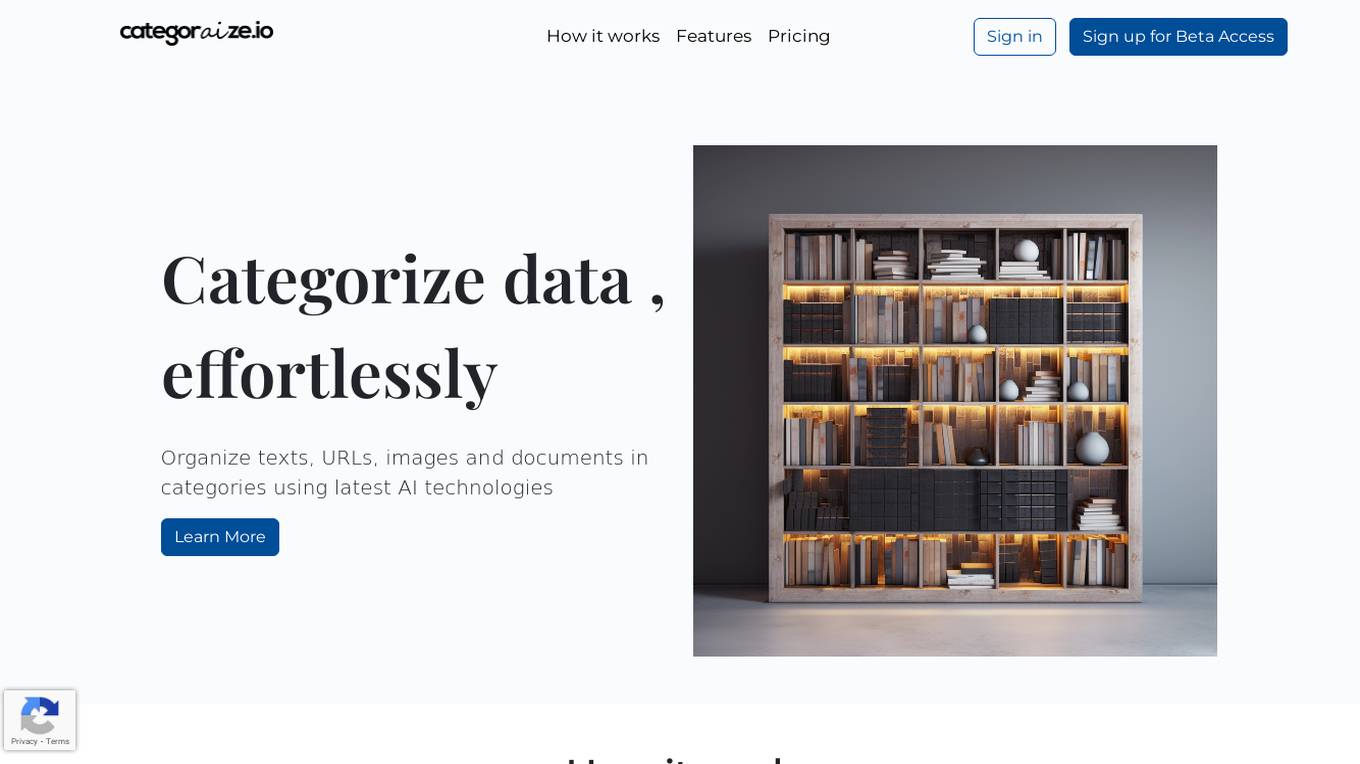
CategorAIze.io
CategorAIze.io is an AI-powered tool that helps users categorize data effortlessly using the latest AI technologies. Users can define custom categories, upload data items, and let the cutting-edge LLM AI automatically assign entries based on their content without the need for pretraining. The tool supports multi-level hierarchies, text and image-based categorization, and offers pay-as-you-go pricing options. Additionally, users can access the tool via browser, API, and plugins for a seamless experience.
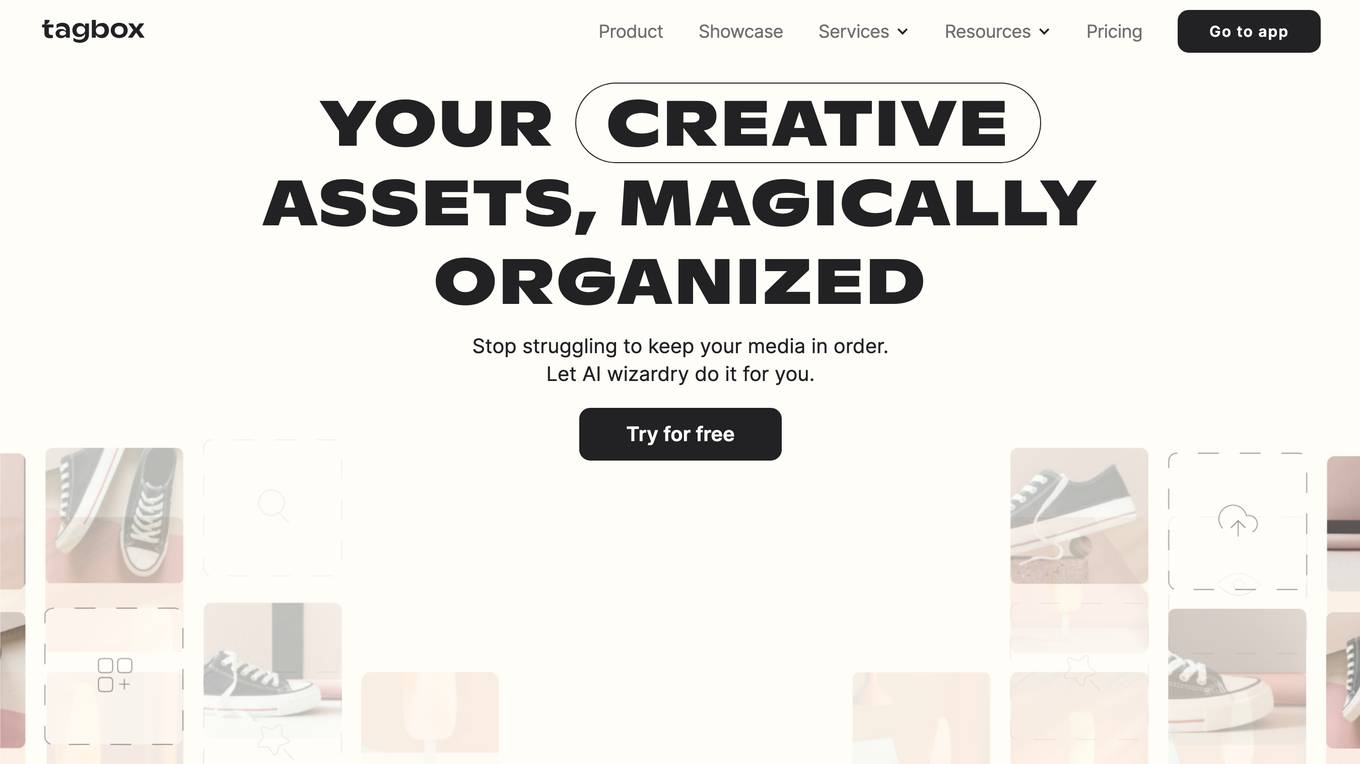
Tagbox
Tagbox is a creative asset management tool that uses AI to organize and manage media files. It helps teams to easily find and access the assets they need, saving them time and hassle. Tagbox is used by a variety of businesses, including retailers, agencies, and event planners.
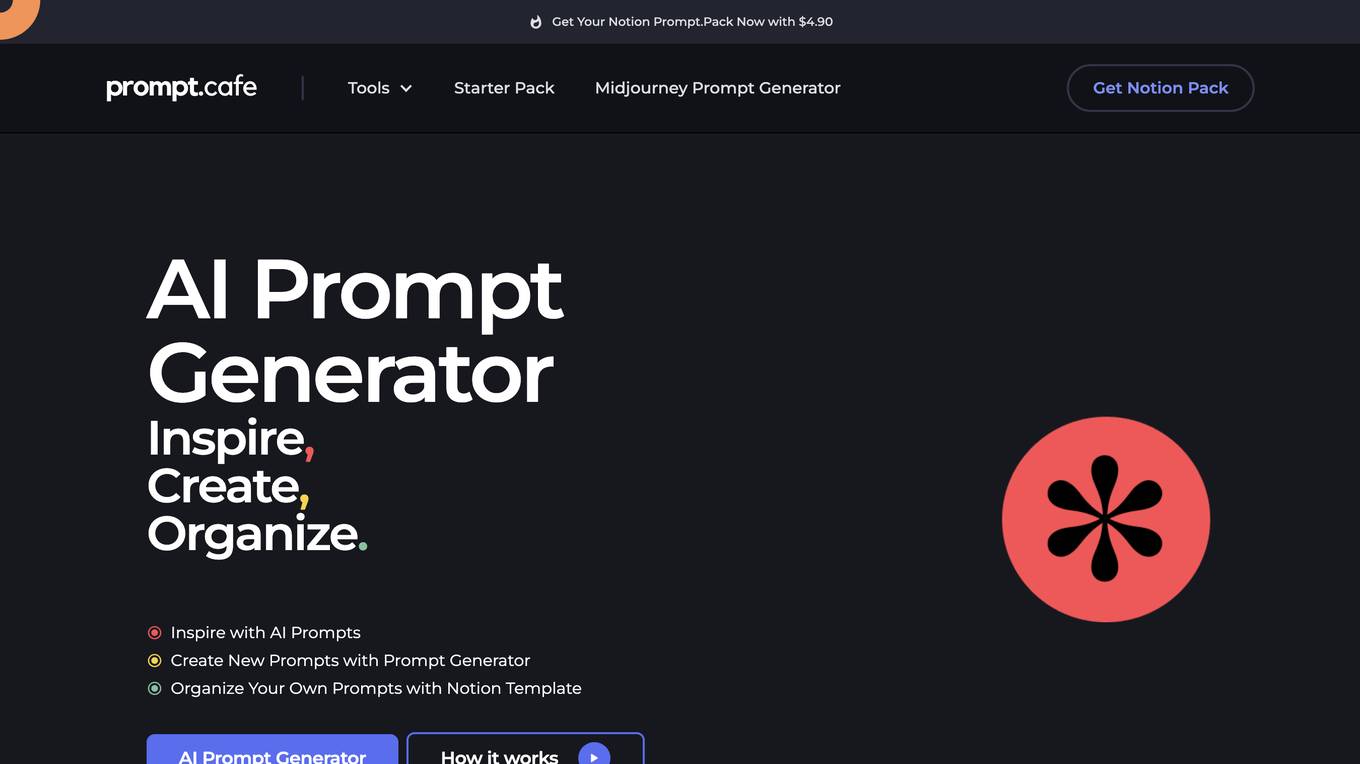
Prompt.Cafe
Prompt.Cafe is a website that provides AI-powered tools for content creation, marketing, and design. The website offers a variety of tools, including a monthly content calendar, an article-to-Twitter-thread converter, a marketing assets bundle, personalized Midjourney prompts, landing hero images, and a video-to-blog post converter. Prompt.Cafe also offers a Notion pack to help users organize their prompt library.

Keepi
Keepi is a personal knowledge AI tool that allows users to capture, organize, and retrieve their knowledge effortlessly. By leveraging AI technology, Keepi helps users save and learn from their ideas, documents, and images, creating valuable insights. Users can access their personal knowledge on the go or in the office, enhancing their productivity and decision-making. Keepi.ai aims to provide users with a seamless experience in managing and utilizing their knowledge effectively.
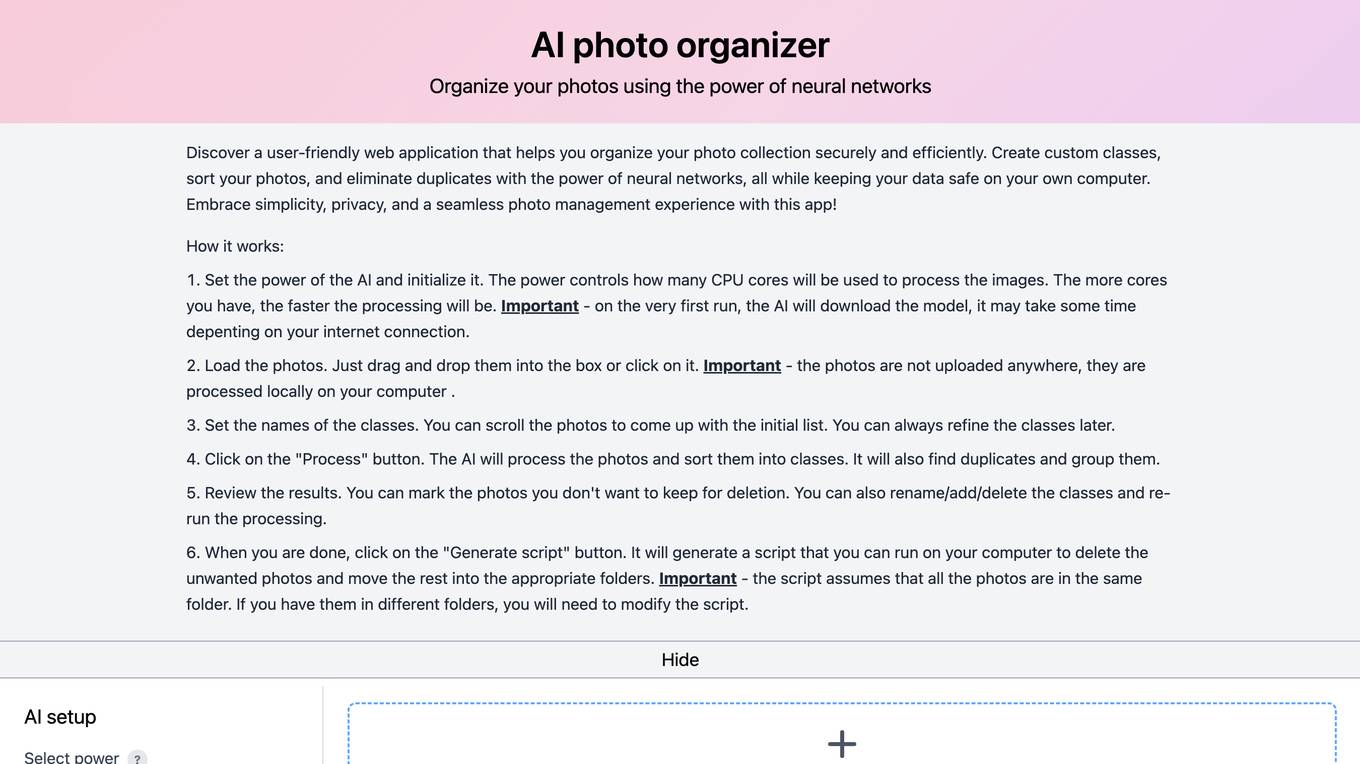
AI Photo Organizer
The AI photo organizer is a user-friendly web application that utilizes neural networks to help users securely and efficiently organize their photo collections. Users can create custom classes, sort photos, eliminate duplicates, and manage their data locally on their own computer. The application provides a seamless photo management experience, emphasizing simplicity and privacy.
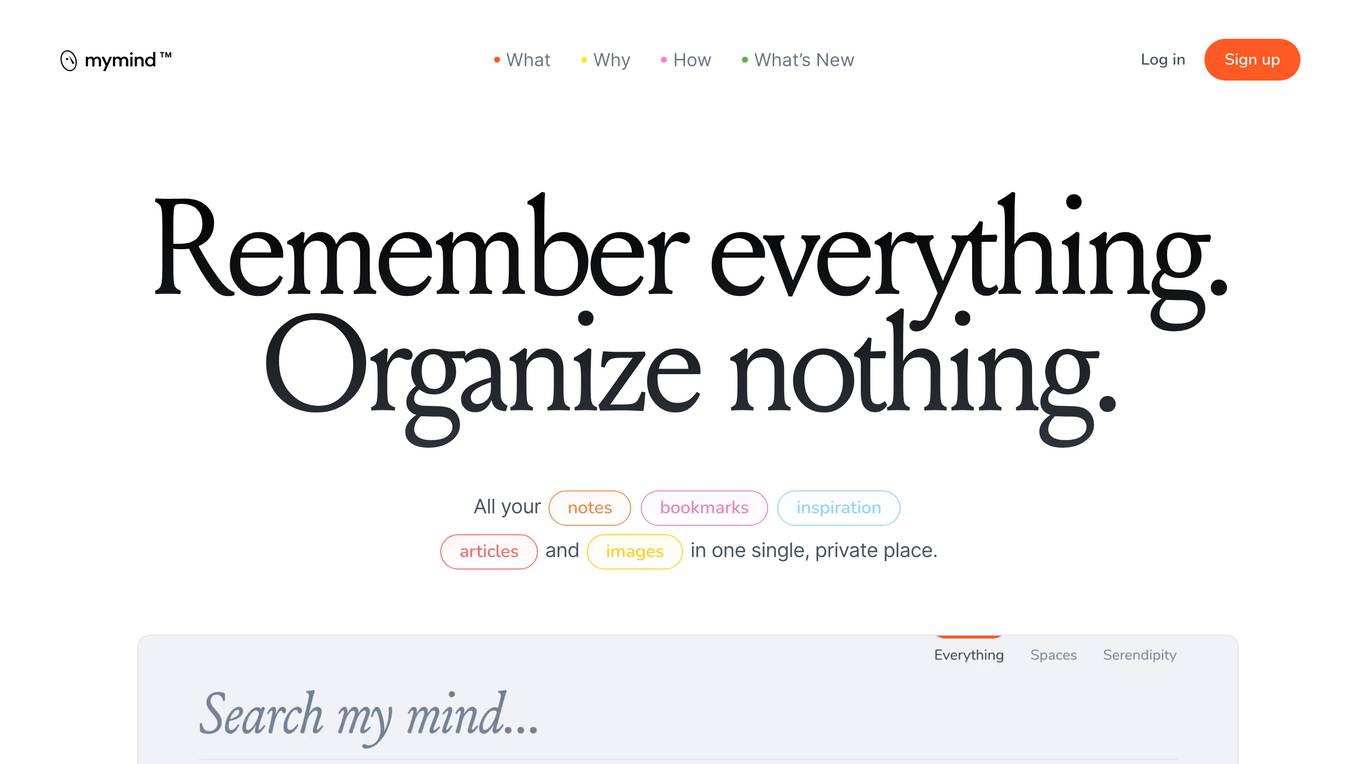
mymind
mymind is an AI-powered extension designed to help users organize and remember everything in one private place. It offers features like smart bookmarking, text recognition, and instant collections to streamline information management. The application aims to provide a clutter-free and personalized experience for users to save, organize, and access their notes, bookmarks, inspiration, articles, and images effortlessly.
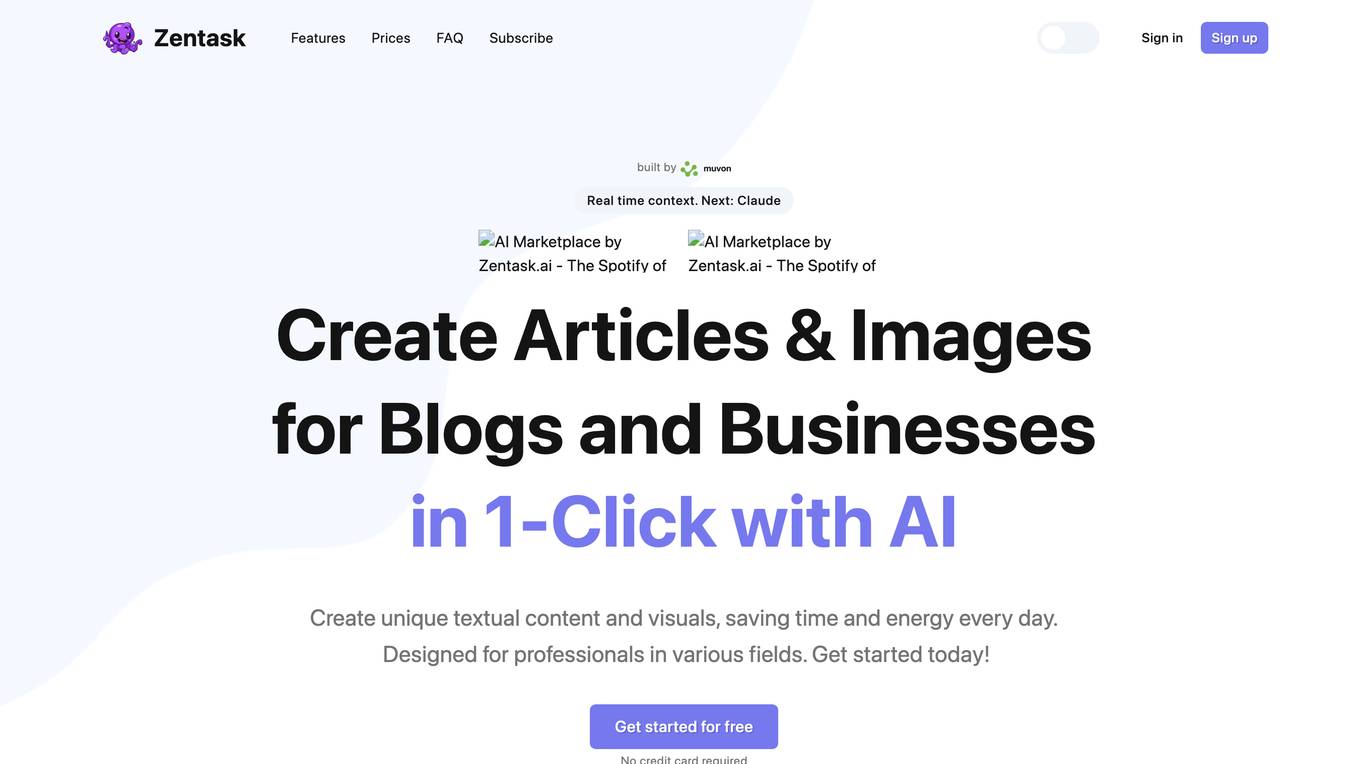
Zentask
Zentask is an AI tool designed to create articles and images for blogs and businesses in just one click. It offers a platform where professionals can generate unique textual content and visuals quickly and efficiently, saving time and energy. With a focus on diverse AI resources, Zentask helps in composing, investigating, evaluating, and producing visuals for various purposes. The tool is tailored for professionals in different fields, providing a seamless and user-friendly experience to boost productivity and streamline daily tasks.
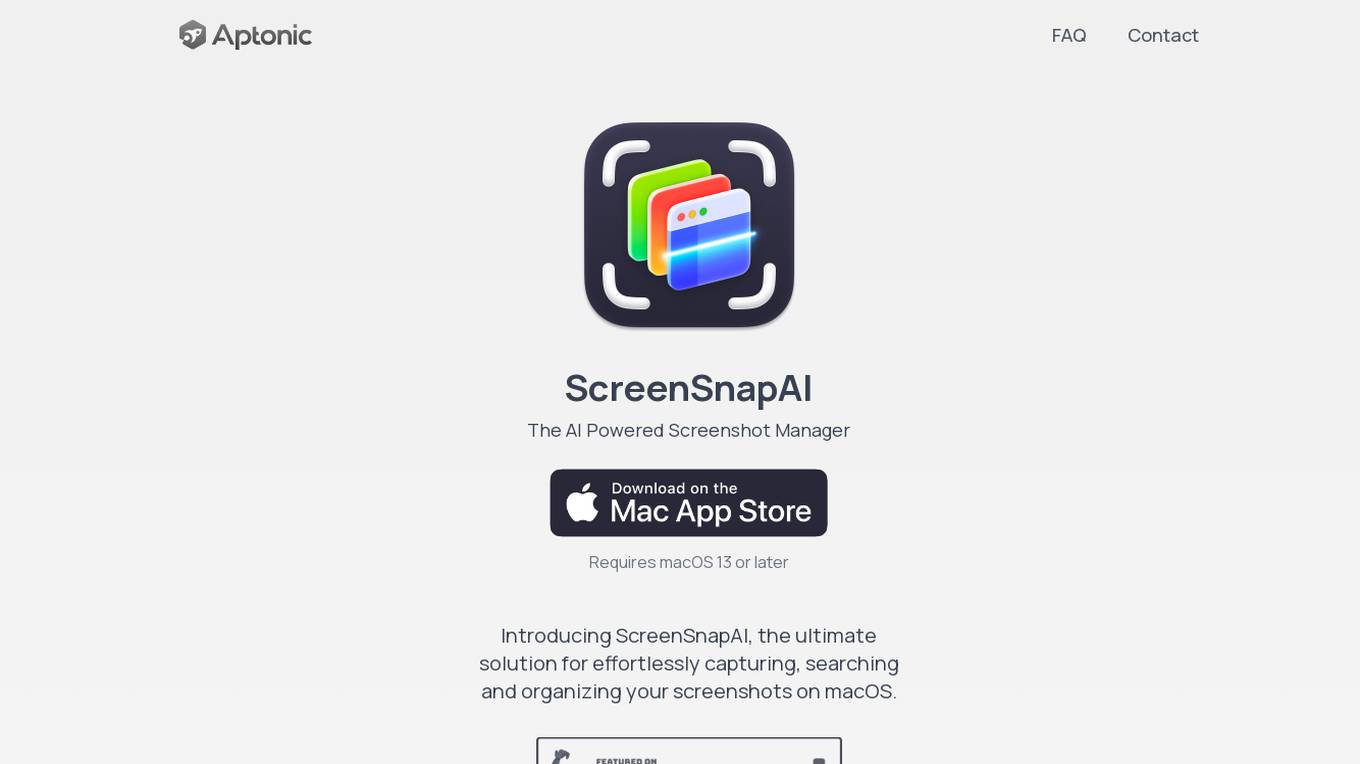
ScreenSnapAI
ScreenSnapAI is an AI-powered screenshot manager for macOS that helps users capture, search, and organize their screenshots effortlessly. It uses GPT-4 to automatically generate smart screenshot names, descriptions, and keywords, making it easy to find and organize screenshots. ScreenSnapAI also features smart folders for automatic filtering, lightning-fast full-text search, and the ability to import images from other sources (pro version only).
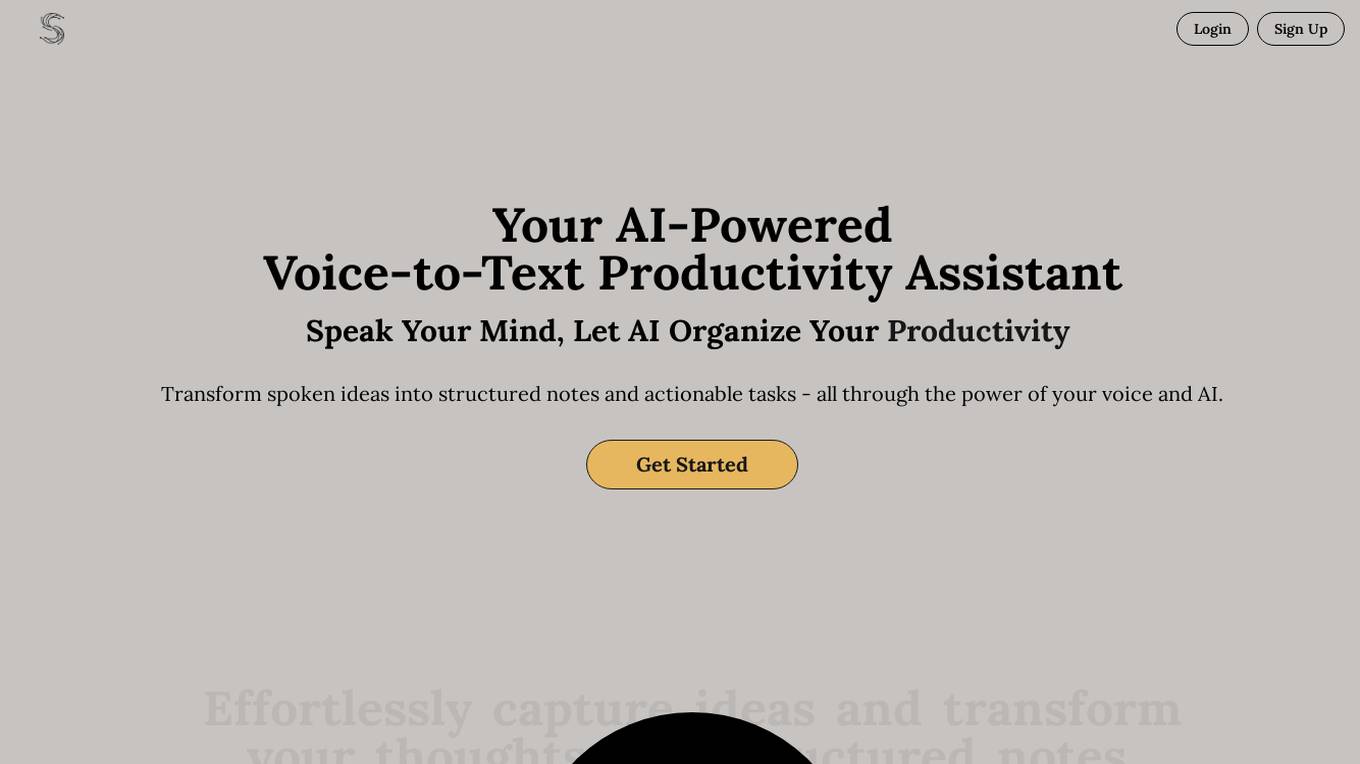
Scrawly.ai
Scrawly.ai is an AI-powered voice-to-text productivity application that allows users to effortlessly capture ideas and transform them into structured notes, tasks, images, audio, and video using voice commands. The advanced AI technology revolutionizes note-taking and task management, providing intelligent suggestions and reminders to enhance productivity. The application also features an AI-enhanced editor, personalized insights, and AI-generated visuals to bring ideas to life. Scrawly.ai offers different subscription plans tailored for casual users, professionals, and enterprises, with various AI capabilities and collaboration tools.
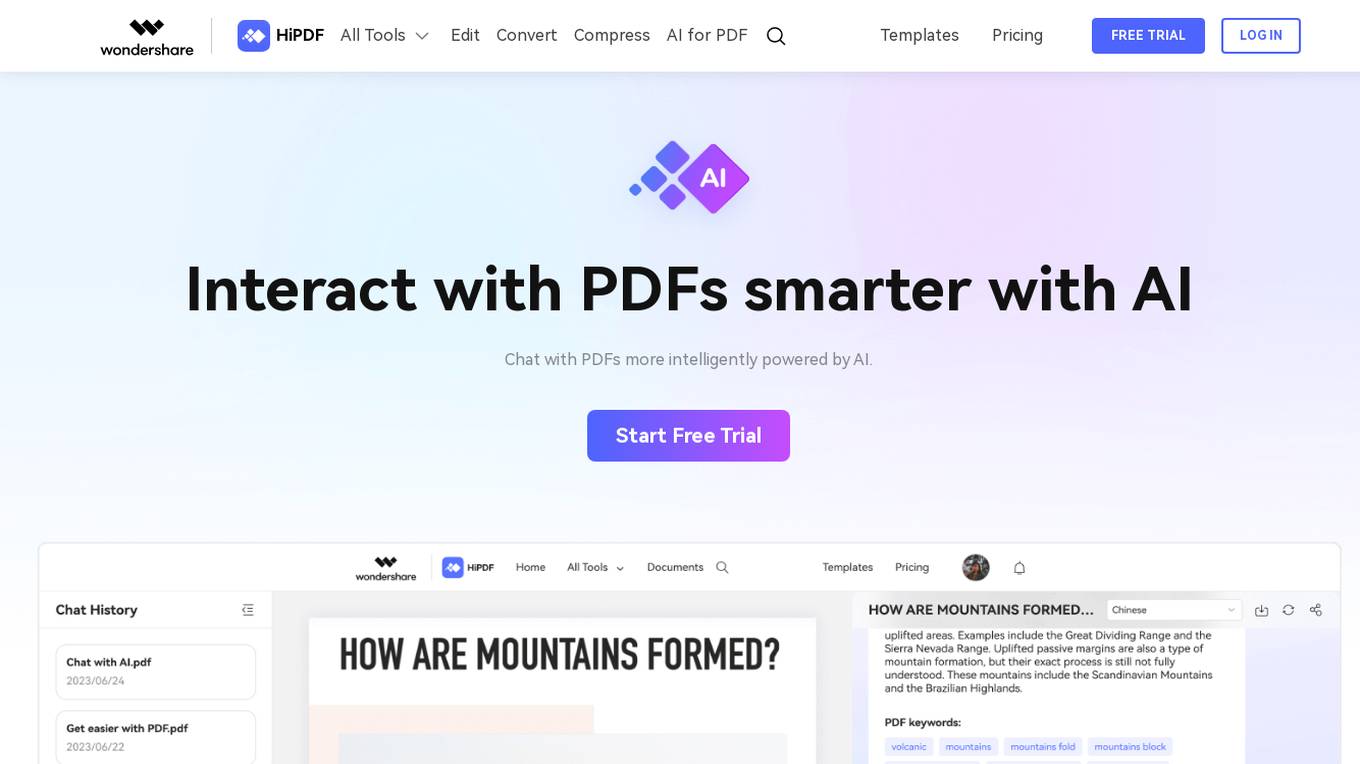
HiPDF
HiPDF is a free online PDF solution that offers a wide range of tools for editing, converting, compressing, and organizing PDFs. It also includes AI-powered tools such as Chat with PDF and AI Detector. With HiPDF, you can easily edit PDFs in your browser, convert PDFs to and from other formats, compress PDFs to reduce their size, and merge, split, and extract images from PDFs. You can also protect your PDFs with passwords and redact sensitive information. HiPDF is a convenient and easy-to-use tool that can help you with all your PDF needs.
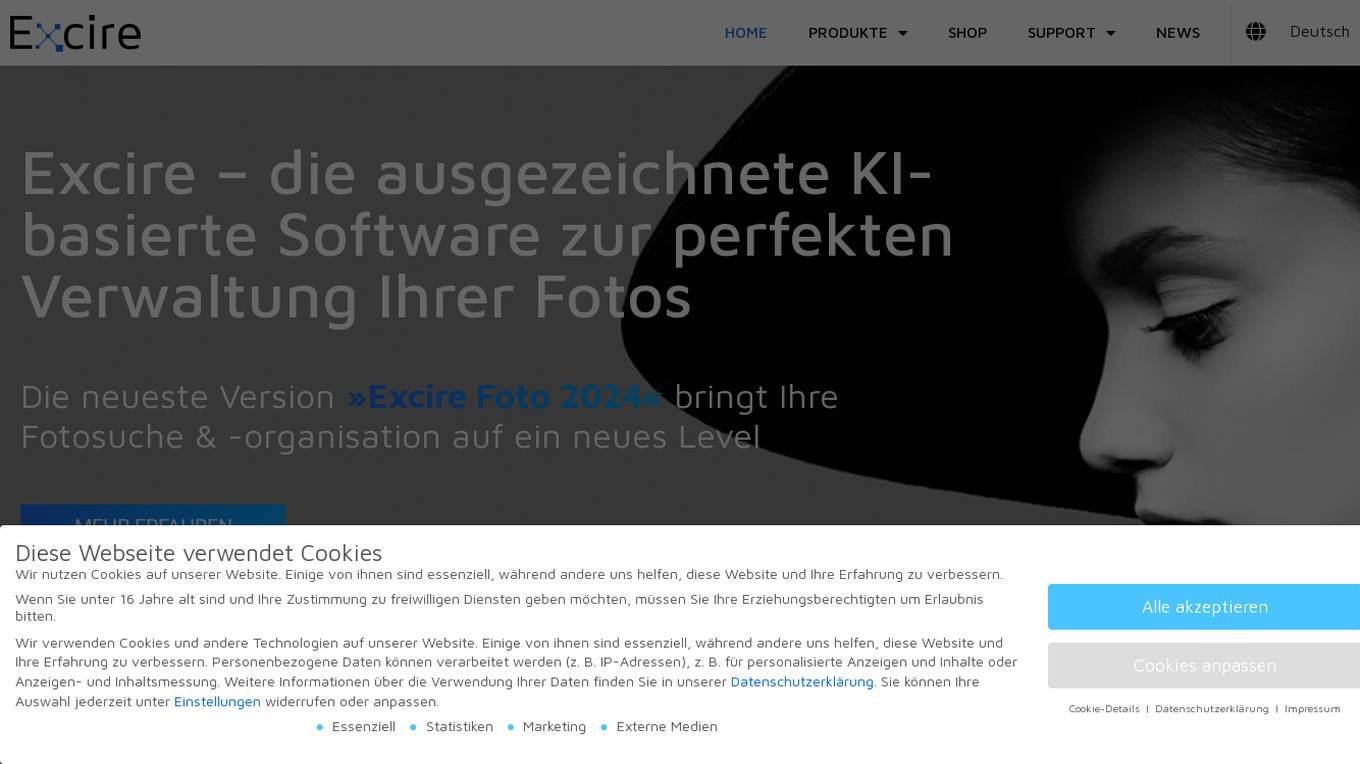
Excire
Excire is an award-winning AI-based software designed for perfect photo management. The latest version, Excire Foto 2024, elevates your photo search and organization to a new level. It features five independent AI models that provide various search functions. Additionally, it offers innovative features and enhanced performance. Excire Search 2024 is the latest upgrade for Lightroom Classic users, offering intelligent image management, improved photo analysis AI, and integrated free-text search. Excire excels in assisting users in maintaining digital archives, finding photos quickly, and creating photo collections effortlessly.
0 - Open Source AI Tools
20 - OpenAI Gpts
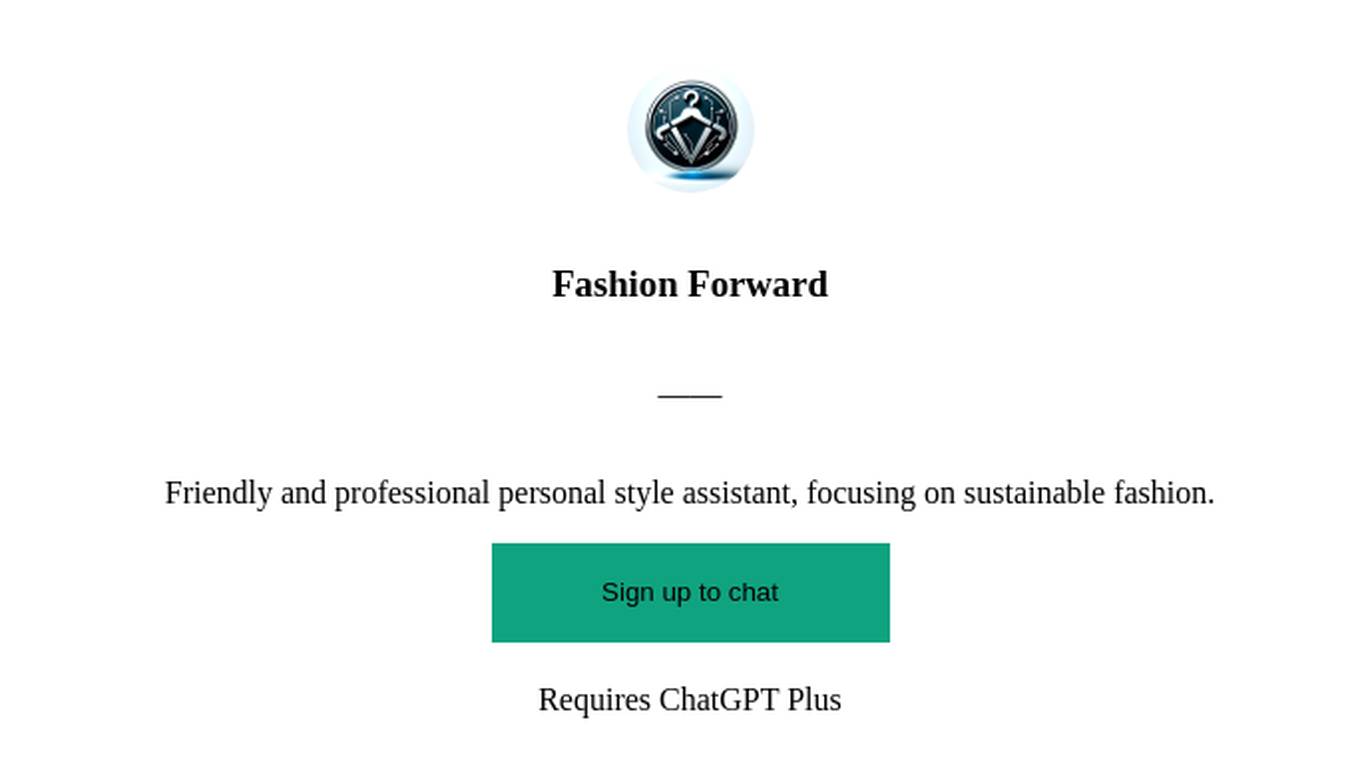
Fashion Forward
Friendly and professional personal style assistant, focusing on sustainable fashion.
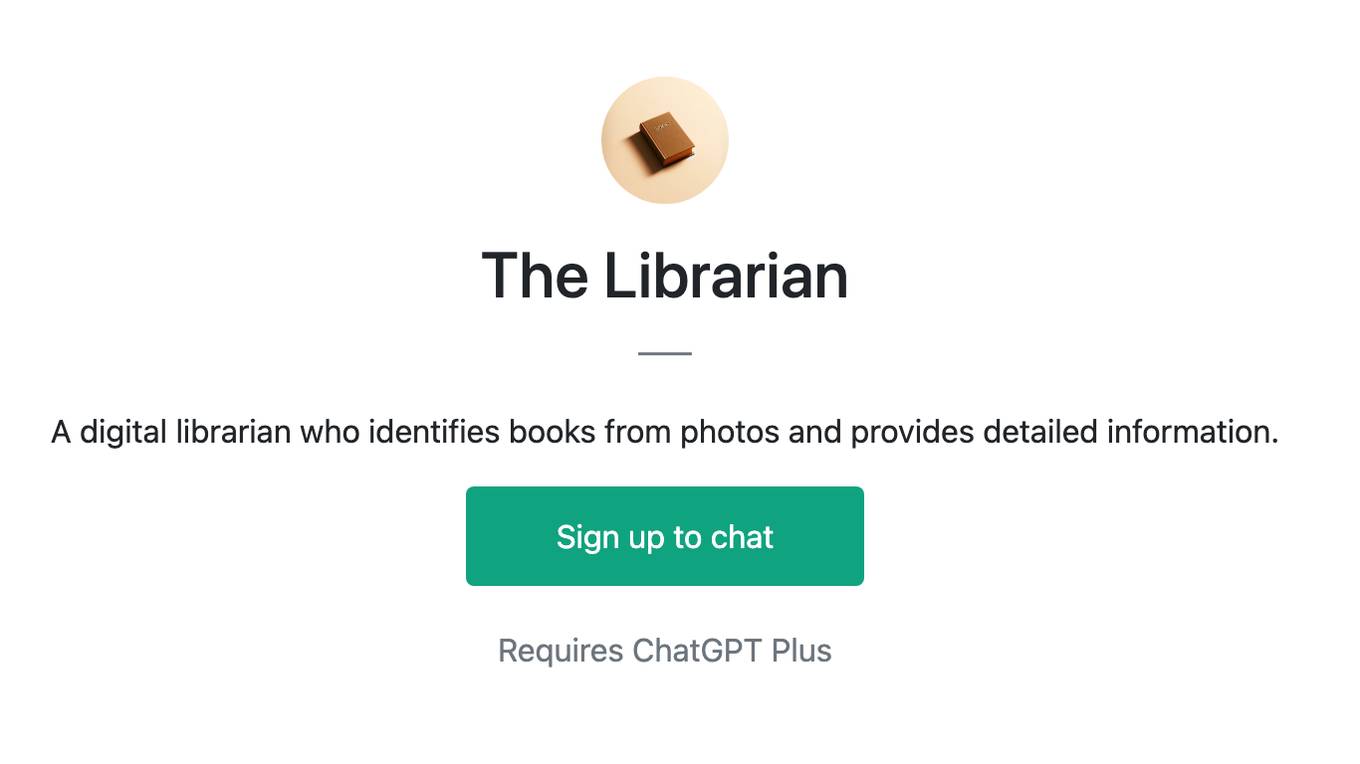
The Librarian
A digital librarian who identifies books from photos and provides detailed information.

Value Scout - Keep, Sell, or Toss!
Wondering what something might be worth? Get started instantly - just upload an image!

Golf GPT – Your Instant Guide to Golf Rules
Your Expert on the Official 2023 Golf Rules: Simply describe or upload an image of your play scenario, and receive precise, reliable guidance on the applicable rules. Perfect for players and enthusiasts seeking accurate and instant rule clarifications
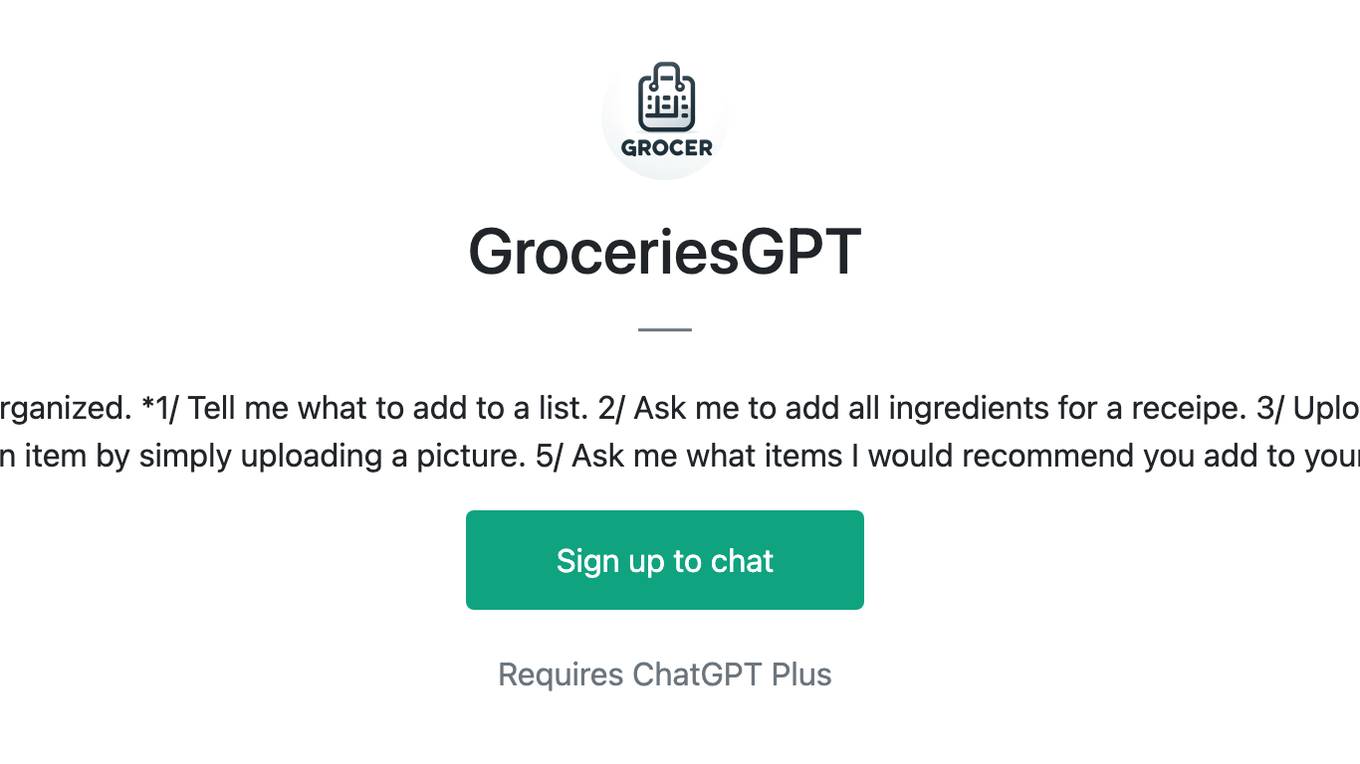
GroceriesGPT
I manage your grocery lists to help you stay organized. *1/ Tell me what to add to a list. 2/ Ask me to add all ingredients for a receipe. 3/ Upload a receipt to remove items from your lists 4/ Add an item by simply uploading a picture. 5/ Ask me what items I would recommend you add to your lists.*

Voyager | Organize & Budget your Trip ✈️🌴
Friendly AI travel companion for personalized trip planning.
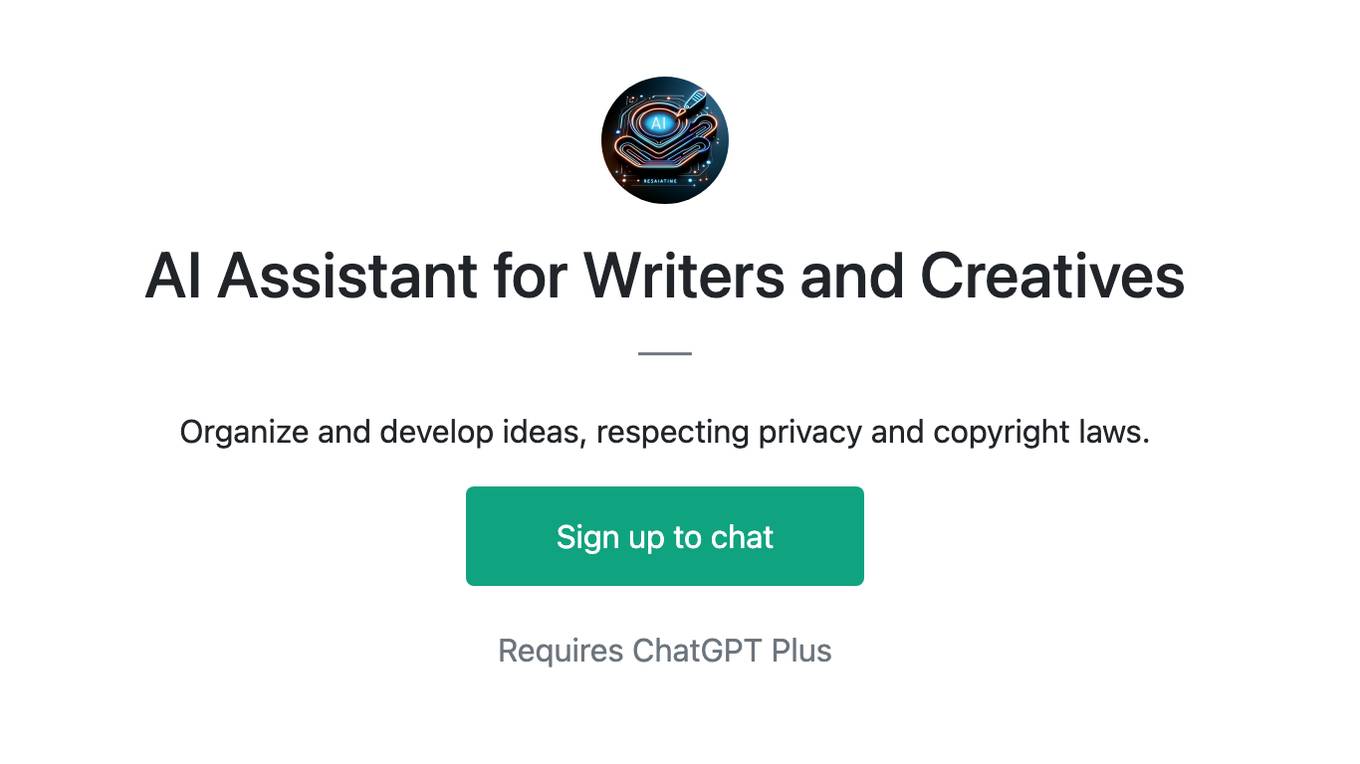
AI Assistant for Writers and Creatives
Organize and develop ideas, respecting privacy and copyright laws.
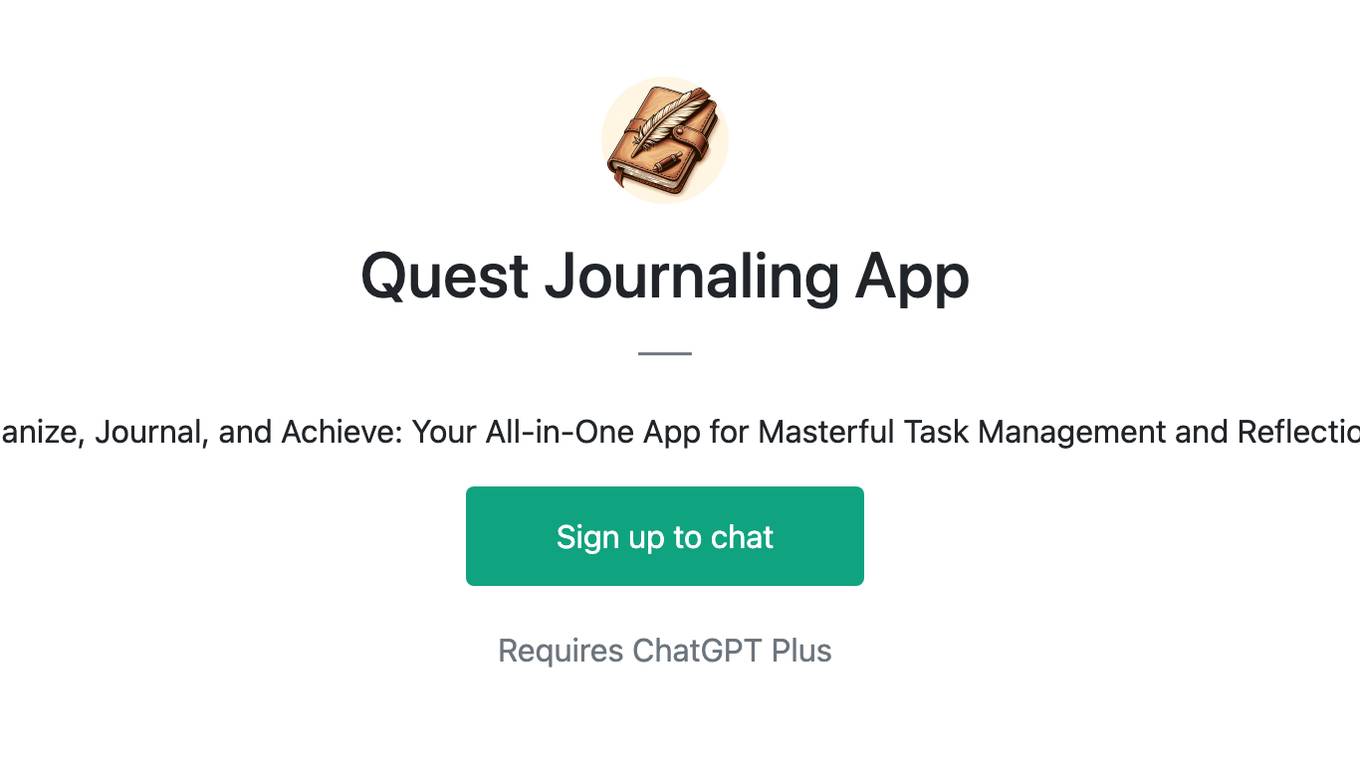
Quest Journaling App
Organize, Journal, and Achieve: Your All-in-One App for Masterful Task Management and Reflection

Categorize your perfumes
Analyzes and categorizes perfume data from Excel, or lists. Upload a file with your perfume names or just the names of your perfumes and this GPT will help you organize the information.
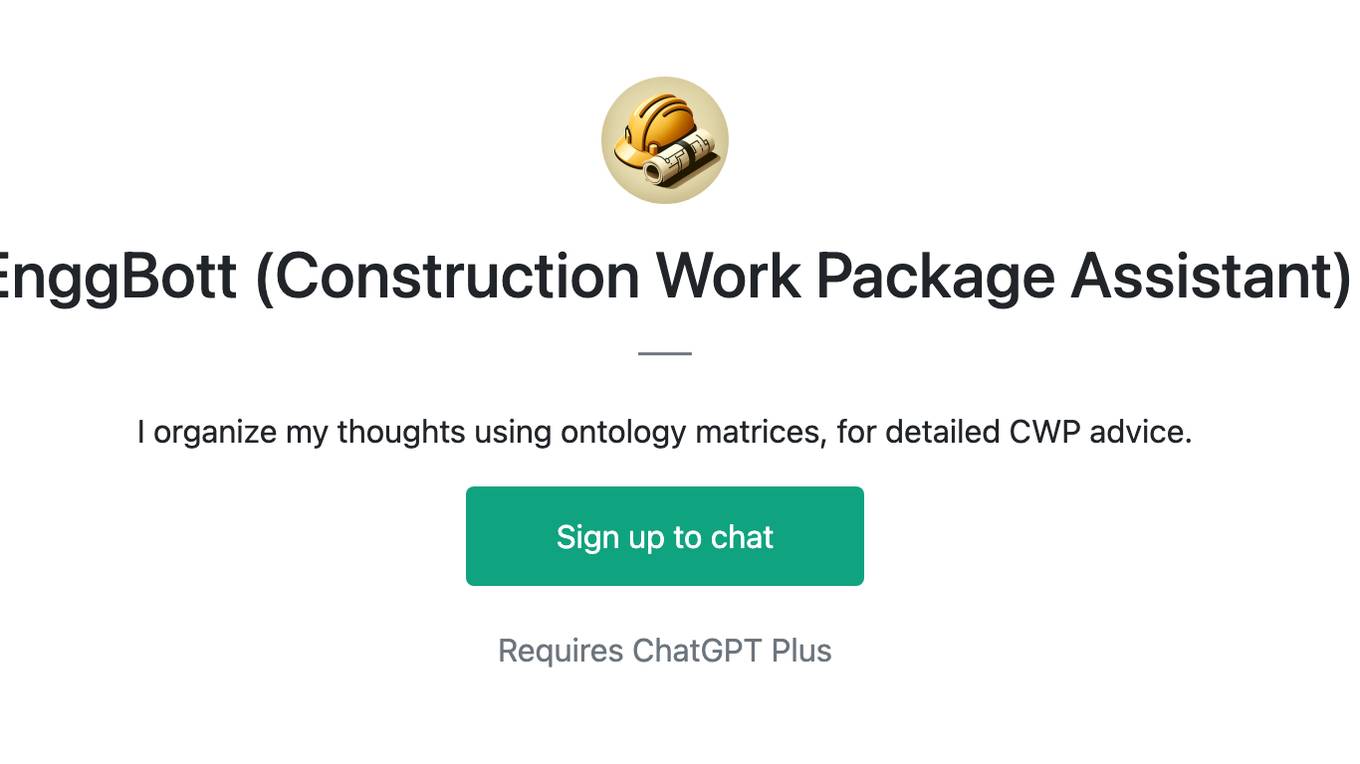
EnggBott (Construction Work Package Assistant)
I organize my thoughts using ontology matrices, for detailed CWP advice.
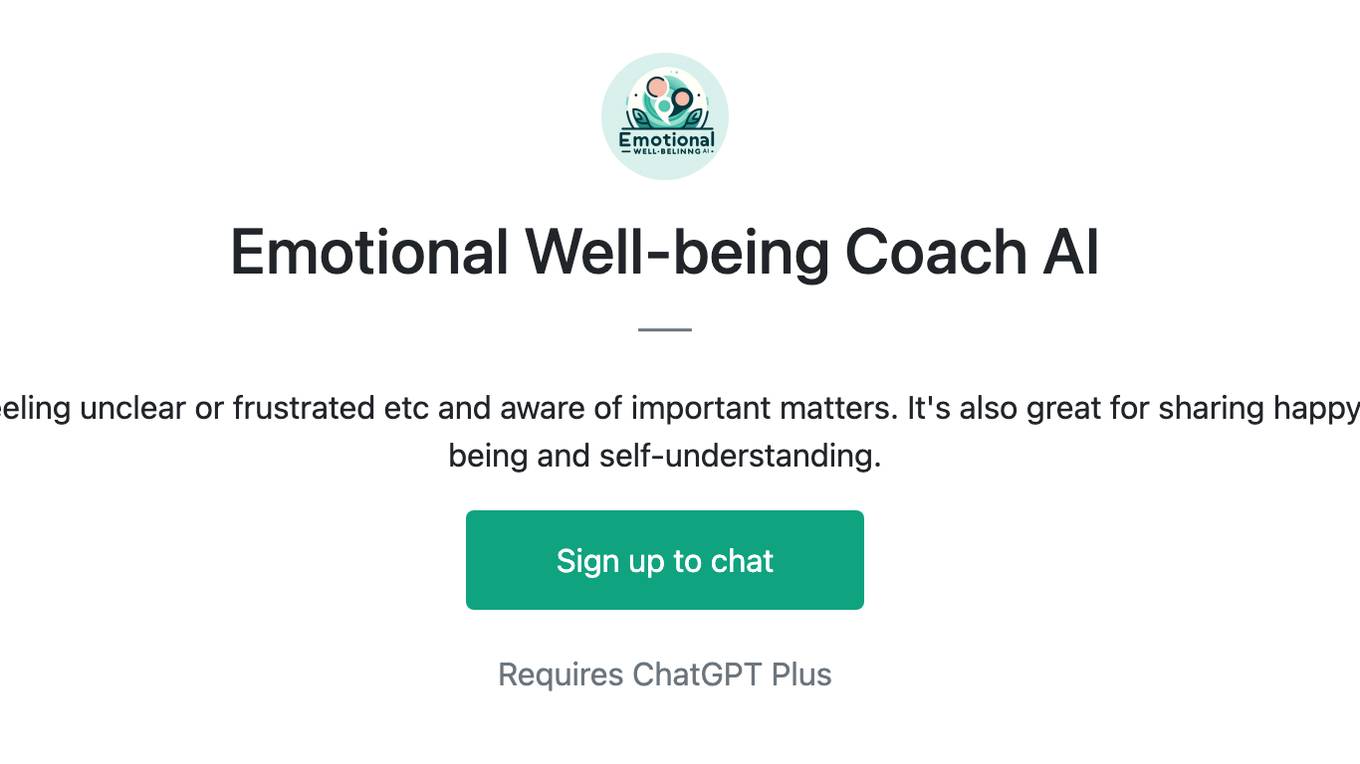
Emotional Well-being Coach AI
I help organize your feelings when you're feeling unclear or frustrated etc and aware of important matters. It's also great for sharing happy moments. I support your emotional well-being and self-understanding.
GhostWriter | BrainDump
I brainstorm and organize story ideas into structured events, world facts, and character outlines. Elevate your storytelling craft with Fiction Flow's GhostWriter series; learn more at fictionflow.io.
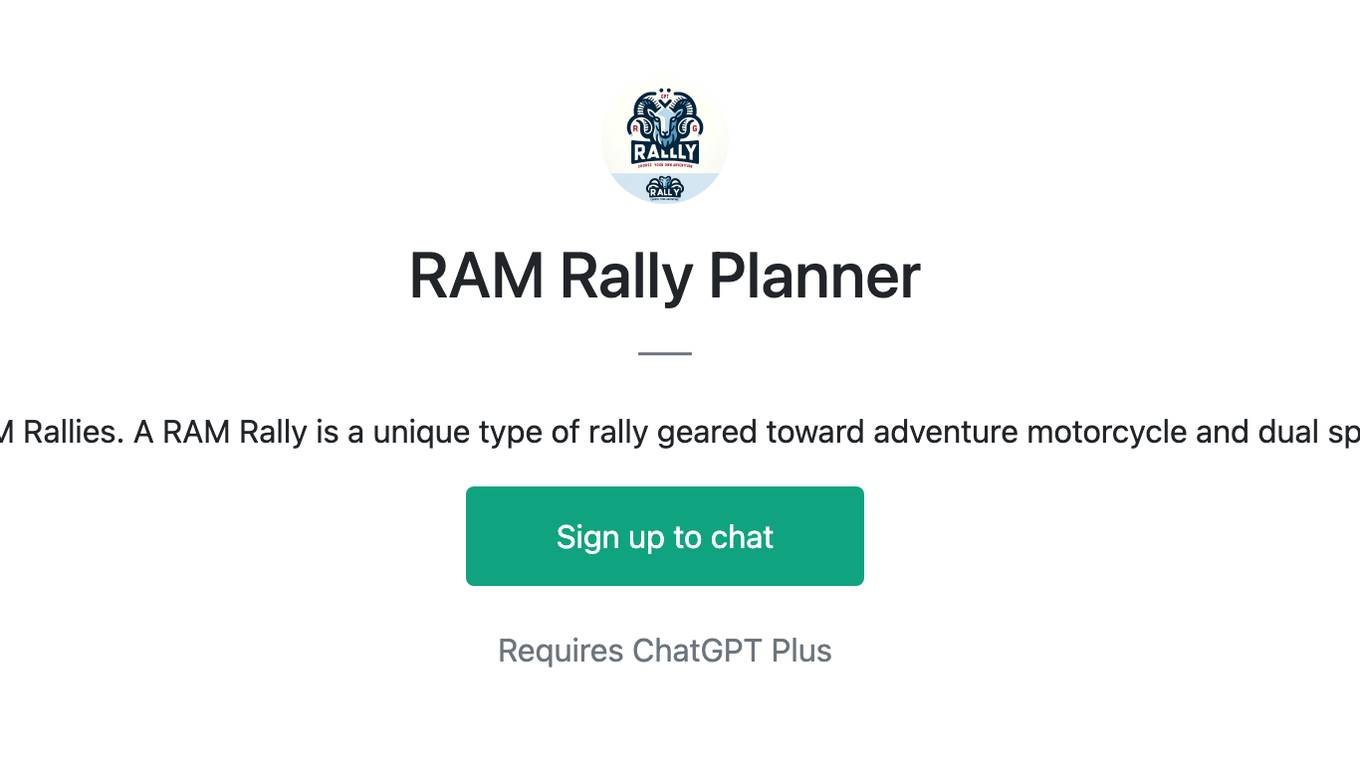
RAM Rally Planner
I help plan and organize RAM Rallies. A RAM Rally is a unique type of rally geared toward adventure motorcycle and dual sport riders of all skill levels.
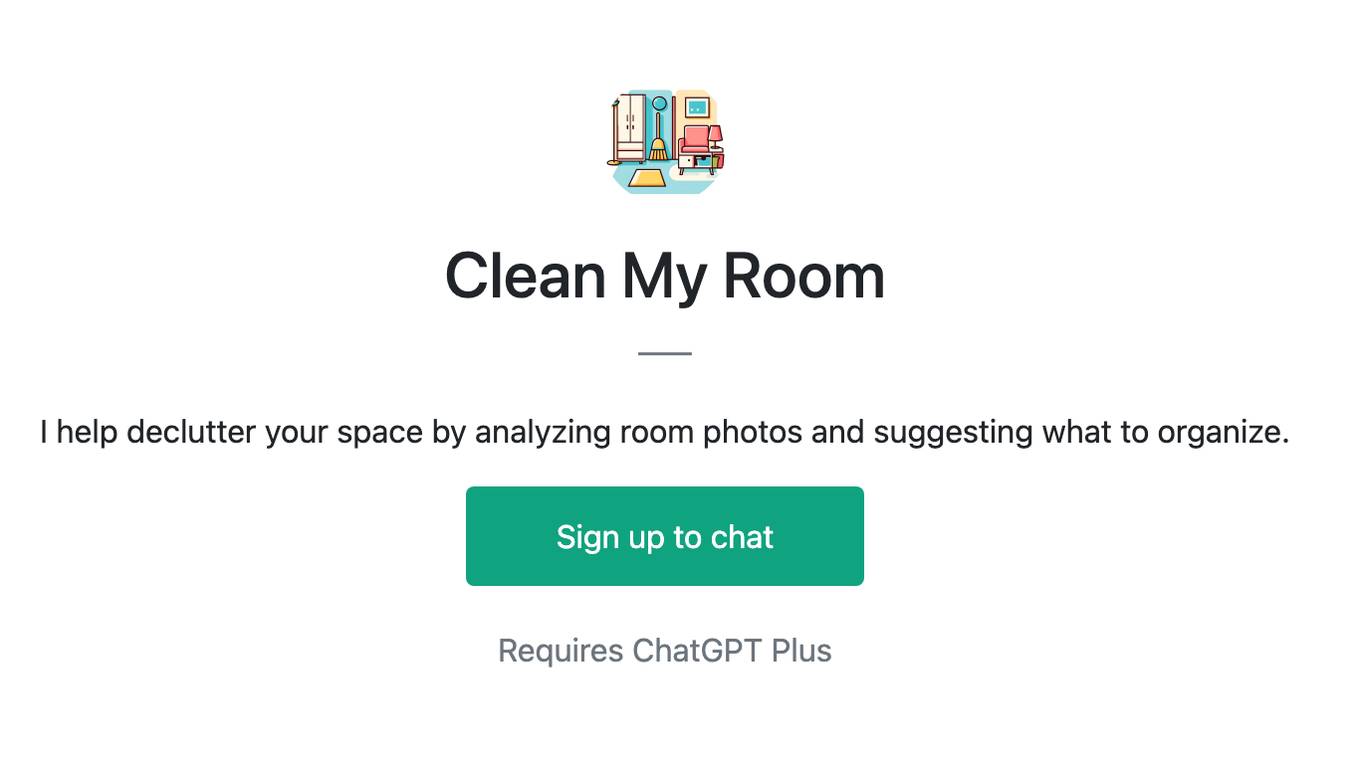
Clean My Room
I help declutter your space by analyzing room photos and suggesting what to organize.
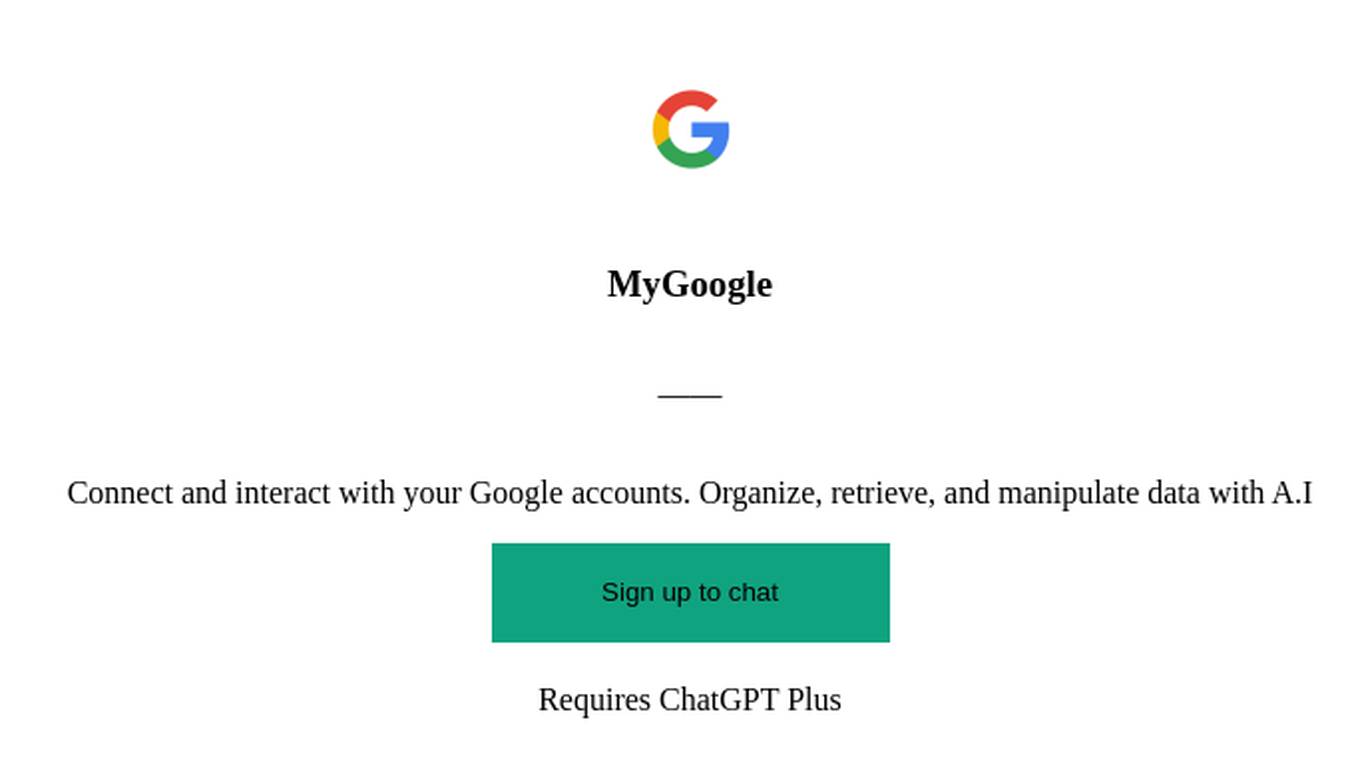
MyGoogle
Connect and interact with your Google accounts. Organize, retrieve, and manipulate data with A.I
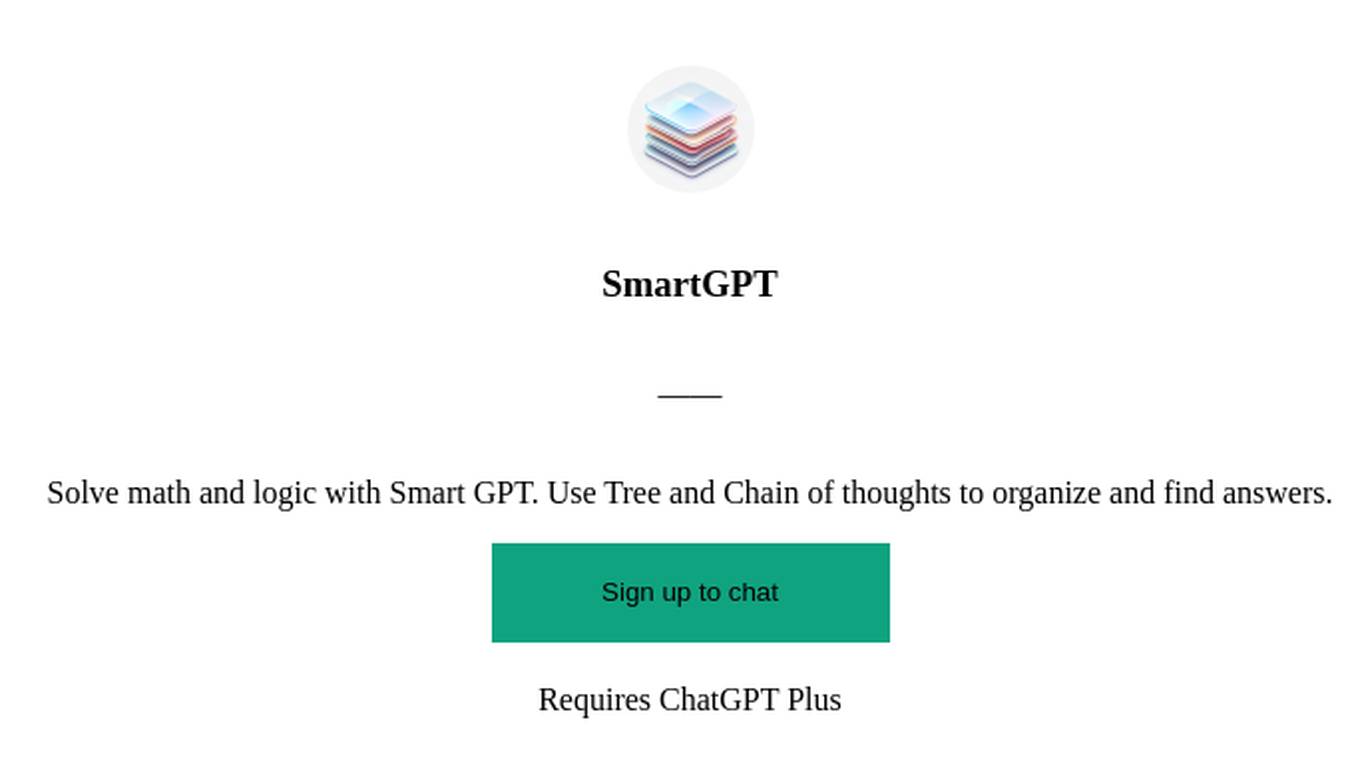
SmartGPT
Solve math and logic with Smart GPT. Use Tree and Chain of thoughts to organize and find answers.
